
Travel Fam Trip
The Best Travel Fam Tips
- Travel Fam Tips

How Travel Agencies Earn Money: A Complete Guide To Their Revenue Streams

Have you ever caught yourself wondering how travel agencies manage to stay afloat in this era of easy-peasy DIY trip planning? You’re not alone – it’s a question that has crossed my mind more times than I can count, especially after learning that travel agencies in the U.S. pulled in a whopping $17.3 billion in 2021! Like many of you, I was itching to peel back the curtain on this tenacious industry and get a glimpse at their revenue-generating magic tricks.
So buckle up and come along for the journey; our guide is your all-access pass to demystifying how these travel maestros keep their cash register singing.
Key Takeaways
- Travel agents get commissions from airlines, hotels, and other suppliers for bookings made for their clients. These commissions are a big part of how they earn money.
- Agencies also charge service fees for personalized itinerary planning and handle complex travel arrangements, adding another income source.
- Offering niche services like luxury eco – tourism or themed vacations allows travel agencies to attract specific types of travelers and create additional revenue opportunities.
- Big travel agencies use their size to negotiate better deals with suppliers and provide diverse services worldwide, helping them maximize profits.
- To increase earnings further, travel agents can promote exclusive deals on social media, network with local businesses for corporate arrangements, and consistently enhance their industry knowledge through training.
The Evolution of Travel Agencies

Travel agencies have evolved over time, from traditional storefronts to more modern and flexible home-based models. With the rise of online booking platforms, travel agents have had to adapt their business strategies to stay competitive in the industry.
A Brief History
I’ve seen the landscape of travel agencies transform over time. In their early days, these agencies operated as key gatekeepers between travelers and transportation providers like airlines and train companies.
They thrived on commissions from bookings, wielding exclusive access to reservation systems that were out of reach for the general public.
Over the years, travel agents have had to adapt quickly due to technological advancements. The internet burst onto the scene and suddenly, flight tickets and hotel rooms were just a click away for anyone with web access.
This revolution forced agencies to reevaluate their value propositions and dig deeper into personalized services where they still held an edge over digital platforms.
Shift in Business Models
Travel agencies have had to rethink their approach to stay competitive. In the past, they primarily earned from commissions on bookings for flights, hotels, and tours. Now, with the rise of online travel platforms and do-it-yourself booking options, traditional commission-based models don’t cut it anymore.
Agencies are turning towards more diverse business models that focus on value-added services. They’re charging service fees for personalized itinerary planning and leveraging relationships with providers to offer exclusive deals.
Some even create unique travel experiences that you can’t find elsewhere or cater to niche markets like luxury eco-tourism or adventure travel. By adapting in these ways, they keep their edge in a tech-driven market where travelers demand more control and customization.
Transition to Home-Based Agencies
Making the switch to home-based agencies marked a significant change in the travel industry. I traded my office for my living room, embracing flexibility and personalized service that clients love.
This move cut down on overhead costs dramatically, boosting profit margins without sacrificing quality. By leveraging technology and social media, I can connect with customers anywhere at any time.
Adapting quickly became crucial once I ditched the traditional storefront. Now, fostering relationships with clients and offering tailored experiences is at the core of what I do. It feels good to provide value that goes beyond just booking trips; from crafting unique itineraries to being there when plans go awry – nothing beats the personal touch I can give from my home setup.
Diversifying Income Streams
Diversifying income streams is essential for travel agencies to maximize their earnings and remain competitive in the industry. By offering a variety of services such as customized itineraries, niche travel packages, and corporate travel management, agents can tap into different market segments and revenue sources.
This not only increases their potential for earning commissions from airline and hotel bookings but also allows them to charge service fees or markups on specialized offerings. Moreover, exploring new sales strategies and partnerships with tour operators can further diversify income streams and create additional opportunities for generating profits.
In conclusion, diversifying income streams enables travel agencies to adapt to changing market demands and capitalize on various revenue sources beyond traditional booking commissions.
How Travel Agencies Make Money

Travel agencies make money through various revenue streams, including commissions from airlines and hotels, service fees, and custom itinerary services. To learn more about the different ways travel agents earn money, keep reading!
Breakdown of Revenue Streams
Travel agencies earn money through various revenue streams, including:
- Commission from Suppliers: Travel agents receive a commission from airlines, hotels, car rental companies, and other suppliers for bookings made on behalf of clients.
- Service Fees: They charge service fees for the time and expertise invested in creating customized itineraries and handling complex travel arrangements.
- Tour Packages: Selling pre-packaged tour deals gives them a margin on the price difference between what they pay the supplier and the package price sold to the client.
- Corporate Services: Business travel management generates income through negotiating corporate rates with suppliers and providing expense management solutions.
- Ancillary Products: Earning commissions from selling travel insurance, visa processing services, and other ancillary products adds to their revenue stream.
- Incentives and Bonuses: Some agents receive incentives or bonuses based on achieving sales targets set by suppliers or consortiums they are affiliated with.
- Group Booking Markups: Organizing group tours enables them to negotiate favorable rates with suppliers and earn markups on group bookings.
Corporate Travel Agencies
After understanding the revenue streams in travel agencies, corporate travel agencies stand out as a significant source of income. These agencies specialize in managing business-related travel for organizations.
They earn money through service fees charged to businesses for booking flights, accommodations, and other logistics required for corporate trips. Additionally, they often negotiate contracts with airlines and hotels to secure discounts or commissions on bookings made for their clients.
Moreover, corporate travel agencies can generate revenue from providing consultancy services that optimize their client’s travel spending through cost-saving measures like bulk purchasing deals and data analysis to identify better booking options.
Leisure Travel Agencies
Leisure travel agencies generate income through commissions on bookings, service fees, and markups on tour packages. They earn a percentage of the total cost when clients book flights, accommodation, or tours through them.
Additionally, travel agents may charge service fees for custom itineraries and specialized services such as destination weddings or adventure trips. Furthermore, leisure travel agencies often markup the price of tour packages provided by suppliers to achieve a profit margin.
By diversifying their revenue streams and offering niche services such as luxury travel experiences or themed vacations, these agencies can maximize their earnings in an increasingly competitive market.
Custom Itineraries and Niche Services
When creating custom itineraries and niche services, I focus on curating unique travel experiences tailored to each client’s preferences. By offering specialized packages such as adventure travel, culinary tours, or eco-friendly getaways, I can meet the specific needs of discerning travelers.
This personalized approach allows me to differentiate my services in a competitive market, attracting clients seeking exclusive and authentic experiences.
I leverage my expertise to craft bespoke itineraries that cater to niche interests like cultural immersion, luxury travel, or off-the-beaten-path destinations. By tapping into these specialized areas, I can provide added value and stand out from mass-market offerings.
Big Travel Agencies
Expanding beyond niche services, big travel agencies play a significant role in the industry. They often have a substantial market share and boast extensive networks with various suppliers such as airlines, hotels, and tour operators.
Scaling their operations to reach a broader audience, these agencies leverage their brand recognition to negotiate favorable terms with suppliers, which in turn impacts their revenue streams significantly.
By tapping into economies of scale and offering diverse services across different regions or continents, large travel agencies can maximize profits while providing comprehensive support to a wide array of clients.
Taking advantage of their size and resources, big travel agencies are able to offer competitive pricing on package deals due to wholesale buying power. Additionally, they can invest in cutting-edge technology solutions that streamline processes for both employees and customers – from booking platforms to customer management systems.
Maximizing Earnings as a Travel Agent
To maximize earnings as a travel agent, understanding the different types of travel agents and tips for increasing income are essential. Want to know more about how you can increase your revenue as a travel agent? Keep reading to learn all about it!
Different Types of Travel Agents
There are various types of travel agents, each specializing in different areas such as corporate travel, leisure travel, custom itineraries, and niche services. Corporate travel agents focus on providing business-related travel services such as booking flights and accommodations for employees attending conferences or meetings.
On the other hand, leisure travel agents cater to individuals seeking vacation packages, cruises, or adventure trips. Some agents specialize in creating customized itineraries tailored to clients’ specific needs and interests while others focus on niche services like destination weddings or eco-tourism.
Some big agencies offer a wide range of services; smaller home-based agencies often provide personalized attention to their clients by focusing on specific niches or customized offerings.
Tips for Increasing Income
To increase income as a travel agent, I suggest the following:
- Leverage social media to promote exclusive travel deals and engage with potential clients.
- Offer personalized services and carefully curated itineraries to attract high – paying clients.
- Network with local businesses to establish partnerships for corporate travel arrangements.
- Invest in ongoing training and education to stay updated on industry trends and destination knowledge.
- Implement a referral program to incentivize existing clients to recommend your services to others.
Understanding Commissions
As a travel agent, understanding commissions is essential for maximizing earnings. Commissions are the primary source of income for many travel agencies and agents. They are typically earned from booking flights, hotels, car rentals, and other travel services on behalf of clients.
These commissions can vary based on the travel provider and type of service booked. It’s crucial to have a clear understanding of commission structures offered by different suppliers in order to negotiate better deals and maximize profits.
Travel agents should also be aware of any incentives or bonuses offered by suppliers, as these can significantly boost earnings. Building strong relationships with preferred suppliers can lead to higher commission rates and exclusive offers for clients.
Creating Niche Services
As a travel agent, I develop niche services to cater to specific customer needs. This may involve creating specialized packages for unique destinations, such as eco-tourism adventures or culinary tours.
By offering niche services, I can differentiate my agency from competitors and attract clients seeking tailored experiences. Additionally, developing expertise in niche areas allows me to provide valuable insights and recommendations that set me apart as an industry expert.
My goal is to identify underserved markets and design custom itineraries that resonate with those audiences. This approach not only enhances customer satisfaction but also boosts my agency’s revenue potential through premium service fees and exclusive partnerships with niche suppliers.
In conclusion, travel agencies can generate income through various revenue streams, including commissions from bookings and service fees. They have adapted business models to diversify their earnings by offering custom itineraries and niche services.
Maximizing earnings as a travel agent involves understanding different types of agents and tips for increasing income. Overall, the profitability of travel agencies is dependent on their ability to adapt to changing market dynamics and offer unique value to clients.
1. How do travel agencies make money?
Travel agencies make money through commissions from airlines, hotels, car rental companies, and tour operators when they book travel services for clients.
2. Can I save money by booking directly instead of using a travel agency?
In some cases, you may find lower prices by booking directly; however, travel agencies often have access to special deals and can provide valuable expertise and support.
3. What are the different revenue streams for travel agencies?
Travel agencies earn revenue through commissions, service fees charged to clients, selling travel insurance or packages, and through partnerships with other businesses in the industry.
4. Do all travel agencies charge service fees?
Not all travel agencies charge service fees; it varies based on the agency’s business model and the complexity of the trip being planned.
5. How much commission do travel agents receive?
Commissions for travel agents vary but typically range between 10-15% of the total booking cost depending on the type of service booked.
Related News

Why Do Travel Agents Get Better Deals? The Truth Behind The Savings

Uncover The Best Travel Agent Fam Trips To Africa: Explore The Wonders Of Kenya, Tanzania, And More!
You may have missed.

Why Taking Family Vacations Is Vital For Building Strong Bonds And Creating Lasting Memories

How Do Disney Travel Agents Earn Their Income?

How To Successfully Market Yourself As A Travel Agent And Gain New Leads
Small Business Trends
How do travel agents make money industry secrets revealed.

Travel agents, versatile in their professional capacities, have the option to be employed by a travel agency or to branch out as independent, self-employed agents.
In either scenario, their primary source of income is generated through planning and booking various components of a journey.
This could involve airline tickets, car rentals, hotel accommodations, among other aspects, all tailored to suit the needs of an individual client or a larger group.
Importantly, their remuneration comes at the end of the process, only after the client makes the final payment, signifying the completion of the travel booking.
Those who are employed by major travel agencies generally earn a steady salary, providing a certain level of financial security.
These agencies often incentivize their employees through additional remuneration models such as commissions, which are based on the volume of business each travel agent is able to generate.
The more travel plans they book, the higher their potential earnings. This effectively encourages agents to increase their productivity and customer base.
On the other hand, self-employed travel agents have a slightly different model of income generation. Their earnings primarily come from commissions they receive from suppliers or by imposing specific fees for their planning and consulting services.
This allows them the freedom to set their own rates and work at their own pace.

In today’s era, characterized by the convenience of the internet and a plethora of travel information available at one’s fingertips, it might seem counterintuitive that the demand for travel agents or agencies remains high.
However, many travelers find the vast array of choices and the necessary time to meticulously research these options to be overwhelming. This is where the value of a travel agent comes into play.
Their expertise in sorting through this abundance of information and crafting a streamlined, personalized travel plan is highly valued.
Consequently, the travel industry continues to thrive, proving that the role of travel agents and agencies is far from becoming obsolete.

12 Ways Travel Agents Make Money
How exactly do travel agents generate income? They have a diversified income model, deriving their earnings from a variety of sources. Whether it’s via commission-based earnings or fixed service fees, they collaborate with travel vendors and utilize numerous strategies to sell travel.
Let’s explore these diverse income channels:
1. Service Fees
A travel agent’s revenue can be significantly supplemented through service fees, charged for distinct elements of the travel planning process. Instead of solely relying on commissions for securing airline or hotel reservations, agents can levy a service fee for each component they book.
Additionally, their role often extends beyond mere booking; they serve as travel advisors, highlighting popular destinations or lucrative deals, thus enhancing the overall travel experience for clients.
A consultation fee for this advisory service may also be part of their earnings.
2. Cruise Incentives
The cruise industry, aiming to ensure maximum occupancy on their vast ships, often extends attractive commission rates or bonuses to travel agents based on the number of cabins they book.
Commissions could be as high as 12%. However, significant portions of the cruise fares, for example in a $3,000 fare around $1,000 might be attributed to taxes.
Agents only earn commission on the non-taxed portion of the cruise fare.

3. Commissions
Prior to the digital revolution in the 1990s, commissions from airline tickets and hotel reservations served as the primary income source for travel agents.
When online platforms enabled easy self-booking, these traditionally high commission avenues began to wane.
Today, although these commissions still constitute a part of an agent’s earnings, the rates have lowered considerably.
Domestic flights typically fetch around a 5% commission, whereas international bookings can secure between 10-20%.
A roundtrip within the US coupled with a $200 hotel room would thus generate a modest $20 commission. With this shift, many travel agencies and self-employed agents have pivoted towards a flat fee model to ensure a steady stream of income.
4. Travel Insurance
For many travel agents, selling travel insurance is a significant part of their revenue. Not only does this service offer lucrative commission rates, but it also fulfills a critical need of travelers, providing financial protection against unforeseen events during their journey.
By offering insurance, agents can enhance their service portfolio, ensuring a comprehensive travel experience for their clients, while also boosting their own earnings.
5. Car Rental
Facilitating car rental bookings presents another avenue for income for travel agents. Agents can secure a commission of approximately 8%, or opt for a flat fee model that could range between $25-40 per booking.
By collaborating with rental companies, they ensure convenience for their clients and augment their income stream.
6. Airline Tickets
Collaborating with an Airline Consolidator, agents can help clients secure the most economical airfare. These consolidators scan a vast network of domestic and international airlines to find the most cost-effective options.
If the travel agency or agent charges a flat fee for this service, the final ticket price can still be considerably lower for the traveler, offering them value for money while ensuring steady income for the agent.
Tour operators curate unique experiences, from a week-long fly fishing adventure in Montana’s pristine rivers to a wine tour in California’s top vineyards or a journey through Route 66. Travel agents play a vital role in promoting and booking these exclusive trips, providing their clients with memorable experiences while gaining a part of their income from this segment.
8. Premium Listings
Promoting premium listings is another avenue that travel agents leverage. Companies in the travel industry, such as cruise lines, airlines, or car rental businesses, pay for their services to be highlighted on a host agency website.
This prominent feature attracts potential customers to the premium services. The travel agent gets assigned an accreditation number by the vendor, which helps in keeping track of their sales.
By showcasing premium listings, the agent not only facilitates the client’s search for high-quality services but also secures a payment from vendors for the marketing service.
9. Specialized Travel
In the realm of specialized travel, agents can carve out unique experiences tailored for specific events, such as the Olympics, or particular demographics, like veterans or disabled persons.
They can also curate travel arrangements for niche groups, such as corporations or hobby-based organizations like gardening or cooking clubs.
Corporate travel arrangements are a lucrative sector that can provide a steady income stream.
By ensuring seamless corporate travel experiences and promptly addressing any issues, agents can enhance their reputation, and consequently, their business prospects. Many travel professionals have started their journey by establishing a stronghold in this area.
10. Vacation Packages
Travel agents understand the essence of leisure travel – a carefree experience devoid of hassle for the traveler.
Thus, all-inclusive vacation packages, including resorts, are extremely popular. These packages often comprise of airfare, accommodation, and rental cars, eliminating the need for travelers to worry about separate bookings.
Destination weddings, a trend that has gained significant traction over the years, is another variant of such packages.
Agents, by offering these comprehensive packages, can cater to clients’ needs while securing their earnings.

11. Mode of Travel
Travel isn’t always about planes, trains, and automobiles. Some vacationers desire unique modes of travel—bicycling from one New England Inn to another, journeying down a river on a houseboat, or canoeing in northern Maine’s rivers.
Savvy travel agents cater to these desires, meticulously managing the details and logistics of such unique travel experiences.
By doing so, they create unforgettable memories for their clients while expanding their range of services and income potential.
12. Custom Itineraries
Custom itineraries for clients with distinct travel desires can be a profitable niche for travel agents.
These clients may wish to eschew traditional bus tours in favor of unique adventures, like hiking in Peru’s Andes Mountains, paddling on the Amazon, or birdwatching in the Everglades before heading off to the Florida Keys.
y catering to the specific desires of these often affluent clients, travel agents can build a robust reputation and a steady stream of income.
13. Group Travel Coordination
Travel agents expand their earnings by arranging group travel, such as family reunions or club outings. These bookings often secure better rates and higher commissions. Agents can add a coordination fee for managing the complex logistics of group travel, enhancing their income while providing valuable, organized experiences for groups.
14. Referral Fees
Agents enhance their income by recommending additional services like travel insurance or tour packages, earning referral fees. This involves collaborating with other service providers and earning commissions for each customer referral, broadening their revenue sources beyond direct sales.
15. Membership Programs
Establishing a membership or loyalty program can provide a consistent revenue stream. In this model, clients pay a subscription fee for access to exclusive deals and personalized services, creating a sense of exclusivity and enhancing customer loyalty.
16. Hosting Workshops and Webinars
Travel agents can capitalize on their expertise by hosting paid workshops or webinars. These sessions, covering travel tips, destination insights, or planning strategies, provide an additional revenue stream while positioning the agent as a knowledgeable industry leader.
17. Affiliate Marketing
Agents can utilize their online presence, through websites or blogs, to participate in affiliate marketing. By promoting travel-related products or services, they can earn commissions, diversifying their income streams while offering valuable content to their audience.
18. Social Media Influencing
For agents with a robust social media presence, monetizing their platforms through sponsored content or brand collaborations can be lucrative. This strategy leverages their follower base and influence in the travel industry to generate income.
19. E-commerce and Merchandising
Selling travel-related merchandise, such as guidebooks or travel gear, directly through their website or office allows agents to tap into the retail aspect of the travel industry, creating another avenue for profit.
20. Virtual Travel Planning Services
In an increasingly digital world, travel agents can offer virtual travel planning services. This involves creating detailed itineraries, virtual tours, and travel advice through online consultations.
Agents can charge for these personalized digital services, catering to clients who prefer planning their travels from the comfort of their homes. This service is especially appealing to tech-savvy travelers or those seeking unique experiences that might not be available through traditional travel packages.
How Much Money do Travel Agents Make?
As per national statistics, the typical income for individuals in the travel industry stands at approximately $39,000.
However, one must bear in mind that this figure is an average that amalgamates the incomes of individuals working for an agency and those who are self-employed.
It doesn’t delve into the nuances that come with these different forms of employment or the variable income patterns associated with each.
Interestingly, despite this average, many agents in the industry surpass this figure significantly, earning incomes well into the six figures.
These individuals typically have an expansive network of clients, offer highly specialized services, or have carved out a niche for themselves in the industry.
Their success underscores the potential for substantial earning within the travel industry for those who can differentiate themselves and cultivate a robust client base.

Types of Travel Agent
The working environment within the travel agent community can be highly varied.
How do travel agents make money in these diverse settings?
They may choose to operate either from a home-based office, offering flexibility and personal convenience, or opt for a traditional office setting, which can provide a more structured work environment and greater opportunities for collaboration with peers and clients.
Regardless of their chosen work setting, the aim remains the same: crafting ideal travel experiences for clients.
How to Maximize Your Earnings
- Diversify – Your revenue streams should come from several different sources.
- Sell Add ons – Especially travel insurance. Also seek to sell “side tours” with hotel bookings.
- Work for a Corporation – Cha-ching. It’s not only a great way to make money. It’s a great way to bolster your reputation.
- Make Arrangements for Group Travel – This can be a headache. At the same time, it’s a way to prove your organization talents.
- Specialized Trips – This type of organized travel is increasingly popular. Specialized travel includes honeymoons and anniversaries, retirements and other milestones.
How do travel agents get paid?
- Commissions – you are paid a percentage of the cost.
- Service fees – you charge a fee for arranging each segment of travel.
- Salaries – you work for a large travel company.
- Net price overages – the vendor gives a price break, for example, for a number of hotel rooms (100). You add to the per room fee by a chosen dollar amount.
- Travel perks – This isn’t a dollar figure, but vendors may give you a price breaks on things like hotel rooms or airline seat upgrades.
Image: Depositphotos

© Copyright 2003 - 2024, Small Business Trends LLC. All rights reserved. "Small Business Trends" is a registered trademark.

How to Become a Travel Agent—Because, Believe It or Not, the Industry Is on the Rise
By Scott Bay

There’s a reason “how to become a travel agent” has been a continuously trending search phrase on Google—it is a career path that offers a flexible work environment and schedule, ample travel opportunities, and an immersion into a supportive world-wide industry. It's a surprise to some in 2023: Once the internet became widely available, it was largely believed that needing a travel agent was obsolete. However, even though the brick-and-mortar agencies with punny names in strip malls have vanished, the career is on-the-rise .
New software options are making it easier than ever for people to make money planning trips, either as a side hustle or as a full-time business. That’s why Cherikonda, India-based stay-at-home mother, Maya Kapoor-Miller, decided to enter the professional world as a travel agent this year, at 31. “I knew nothing about the travel industry prior to signing up,” says Kapoor-Miller, who decided to use San Francisco-based booking platform Dreamport to establish her online travel advisor business. “It is my first business in life, and the only one that you can start with no investment.”
But there's also a rise in demand. When people ventured back into the world after the pandemic, travel agents saw an overwhelming amount of business . And that momentum hasn’t stopped—when travel is complicated, like it was in 2020 and 2021, travelers turned to professional trip planners to create a seamless vacation. For better or worse, traveling has remained complicated and chaotic, with new rules being implemented (like Americans needing to pay a fee to visit Europe in 2024 ) and airline strikes and staffing issues. Offloading all of the nitty-gritty details to someone else is more appealing than ever.
For those entering the field, there's also the age-old motivator: a love of travel.
Shelton Ellis, who is based in North Carolina, recently saw these opportunities and left behind more than 20 years in public relations and global advertising to turn his passion into a career. “I was born with a wanderlust that would wear Rick Steves out,” Ellis says. “I decided to take the leap and follow that lifelong yearning. Transitioning into this role was really about learning how to monetize what I'm passionate about.”
Whether you are looking for a new career path or a lucrative side-hustle—or simply curious about those taking the plunge—here’s how to become a travel agent, from the qualifications and education required, to anticipated earnings, according to those who have made the shift in the past year.
What exactly does a travel agent do?
Travel agents, or travel advisors (the term is mostly interchangeable), manage everything that goes into a trip for their clients: the flights, car transfers, accommodations, restaurant reservations, and more—they even inspire the itinerary. The reason people turn to travel agents, aside from having a helping hand during any travel chaos , is also to tap into the travel agent’s first-hand knowledge of destinations, and their industry partnerships, which often lead to perks such as hotel upgrades, ideal airplane seats, and experiences that can’t be found on a search engine.
“You have to remember that as a travel agent, you will be a guide for people during their happiest moments—family reunions, weddings , baptisms, and once-in-a-lifetime experiences that people have dreamt of,” says Kapoor-Miller. “It has been one of the most rewarding aspects of being a travel agent. You navigate people, inform them, and help them choose.”
So, how do you become a travel agent?
There are many ways to become a travel agent, from joining an existing travel agency , to starting an independent business from the ground up. Others are opting for one of the buzziest start-ups in the travel industry, Fora . When it launched in 2021, the software company, which trains and provides search engine-optimized profile pages to advisors—at one point had a waitlist of over 30,000 people eager to begin a part-time gig. Travel photographer and Condé Nast Traveler contributor Amanda Villarosa is currently in the process of joining.
“I'm the person that friends and family come to for travel recommendations, tips and tricks, and general travel advice,” says Villarosa. “After discovering Fora and looking into it, I realized that it could be the perfect side-hustle, considering I'm already so involved in the industry.”
With additional flexibility, Villarosa was able to move from New York City to splitting her time between Denver and Los Angeles . She says that the sign-up was quite straightforward. “You're given a dedicated Fora email and have access to advising tools and fellow Fora advisors,” she says. “The training is in the form of Zoom meetings and videos, which you have the option to watch at your own pace. Once completed, you take a certification quiz and you're on your way to advising.”
The other ways in are slightly more involved. To begin an independent practice, you go about it like many other businesses. You will have to create an LLC, establish a business name, cultivate marketing materials, build a website, find clientele, and more.
Ellis found something in the middle, choosing to connect with an established travel agency. “Don't be afraid to reach out to an agency looking to take on new advisors and is willing to mentor," says Ellis. "I was fortunate to learn so much from Annie Chambers, the owner of Crafted Escapes , who has seven years in the business.” He now knows the ropes on everything from using itinerary-building software to destination-specific training, to the sales and marketing aspects of the trade.
Is there required education or qualifications?
Ellis says that there's no certification, per se, required to become a travel advisor, but there are countless training courses available like Departure Lounge ’s classes on navigating the industry through hotels and tour operators. He said it’s also important to stay on top of travel trends. Ellis recently completed travel agent training programs provided by premier cruise lines such as Virgin Voyages , Ritz-Carlton Yachts , and Cunard to help agents sell their products more accurately.
How much does a travel agent make?
What a travel agent earns depends on how many trips they successfully book for their clients. The entire model is commission-based, meaning agents earn a percentage of the total cost of the vacation they orchestrate. Many travel advisors choose to charge a flat-rate planning fee in addition to their commission, but balance is key—if you charge a high planning fee, it could lead to potential clients going elsewhere.

By Steph Koyfman

By Kaila Yu

By Jahnavi Bhatt

By Matt Ortile
Fora ’s website states that “some of our full-time, expert advisors earn well into the six figures (or beyond).” So a lucrative career may be on the horizon, for those who are able to build a robust client base and excellent industry connections.
How much you make can also depend on where you live around the world. “I am being paid in dollars,” says India-based Kapoor-Miller. “So the currency fluctuations of the local exchange rate are not something I am worried about.”
What are the key skills required to become a travel agent?
“Travel agents need a mix of customer service, communication, destination knowledge, organizational, and problem-solving skills,” says Kapoor-Miller. “But I would say that adaptability, flexibility, curiosity, and cultural sensitivity top them all—you have to put yourself in other's shoes, and understand the requirements, hopes, and expectations of your clients along with any worries and questions they may have.”
It’s vital to have a passion for traveling, even the aspects of the process that aren’t as exciting, such as learning about new airline routes, train schedule updates, and industry news. “It can be an information-heavy hustle, and I believe it's important to be excited about it as that energy definitely transfers to your clients and partners,” Villarosa says.
Should travel advisors choose a specialization?
Many travel advisors have found success through becoming an expert in a few types of travel and destinations. “It's important to become an authority and learn as much as you can through personal experiences and continuing education,” says Ellis. “As a proud member of the LGBTQIA+ community , an avid snow skier, and scuba diver, I know not only the popular destinations but others that are off the beaten path, equally safe and adventurous for all travelers.” This helps travel agents establish a competitive edge, and hopefully convince potential clients to choose them for their expertise.
What are the benefits of being a travel agent?
“Flexibility tops them all,” says Kapoor-Miller. “And the ability to start without industry knowledge. If you worry that you are too old for this job, the good news is that this is a job you can enter and enjoy at any age.”
Another great perk is the "Familiarization trip,” says Ellis. “Tourism boards and hotels invite agents to visit and familiarize themselves with a particular country and its properties. After all, any accomplished salesperson should learn everything they can about their products first-hand...even if they're in Bora Bora.” It's hard work, but someone's got to do it.
By signing up you agree to our User Agreement (including the class action waiver and arbitration provisions ), our Privacy Policy & Cookie Statement and to receive marketing and account-related emails from Traveller. You can unsubscribe at any time. This site is protected by reCAPTCHA and the Google Privacy Policy and Terms of Service apply.
THE JOURNAL
Travel Advisor Resources
How Much Do Travel Agents Make? Fora’s Full Guide

The Modern Travel Agency
Fora Travel
https://www.foratravel.com/the-journal/how-much-do-travel-agents-make
How much do travel agents make? What factors go into how much a travel agent — or as we prefer, travel advisor — earns? We’re telling all.
Alternatively, you can learn exactly how much you can make by becoming a Fora Advisor . Apply today and we’ll answer all your questions.
First, is there a high demand for travel agents? (Hint: yes!)
And demand is growing. Since travel restrictions were lifted after the COVID-19 pandemic, more people than ever are going on vacations and business trips (check out jobs where you travel ) — more importantly, they’re smarter about how they go about it. And there’s no better way to book a trip than to use a travel advisor to get awesome perks, deals and the kind of personal touches that turns a good trip into a great one.
(Wondering how to become a travel agent ? Our guide has you covered.)
How do travel agents get compensated?
There are a few different ways travel advisors earn income, and the source typically depends on the service. Here’s how it breaks down.
(Wondering about startup and upkeep costs? Check out our guide to how much it costs to become a travel agent .)
Travel partners (or suppliers, in industry lingo) pay commissions: think hotels, travel insurance, rental cars, cruise incentives, tours…
Image courtesy of Turtle Bay Resort
A large portion of a travel advisor’s income comes from commissions, which are a percentage — usually between 10 and 15 percent — of whatever service their client is benefiting from, be it a hotel reservation, travel insurance and so on. (Here are 5 types of bookings you can make as a Fora Advisor that aren’t hotels .)
Suppliers, such as hotel brands, cruise lines and rental car providers pay these commissions; and Fora Advisors don’t charge their clients for commissionable services. In other words? Fora Advisors get paid, and their clients don't have to pay anything extra.
The cool thing is that many of the best hotels and services know that happy travel advisors will send new clients back, so the suppliers will throw in complimentary perks to sweeten the deal. This is why Fora Advisors can offer the same rate as an online travel agency for a hotel room at, say, Virgin Hotels New Orleans (one of the most unique places to stay in New Orleans , by the way), yet offer cool extras for their clients at no additional cost.
Our guide to how much do travel agents make per booking gets into the details of the process if you’re curious.
Clients pay planning & service fees: non-commissionable bookings, vacation packages & custom itineraries…
Besides commissions, planning and service fees are the other major sources of income for travel advisors.
Why might advisors charge fees? In most cases, an advisor may charge a fee to develop a custom itinerary for a client. In this case, the client compensates the advisor for their time, much in the same way one would pay a financial advisor.
At Fora, it’s generally up to the advisor to decide how much to charge (if at all) for custom itineraries.
How much do travel agents make exactly? It depends
There’s no simple answer to this question, because Fora Advisors have the flexibility to work as much or as little as they want. Some treat their advisor position as a part-time endeavor alongside another job or caregiving duties, for instance. Others jump into travel advising full time.
Can you make ‘good’ money as a travel agent? You bet
Is being a travel agent worth it ? Fora Advisors will say yes. Many top Fora Advisors earn six figures per year. Again, when you join Fora, you can work as much or as little as you'd like, so the money earned will vary, but regardless, we'll teach you how to maximize your earnings.
Ready to start your lucrative career in travel? Become a Fora Advisor today .
What’s the average travel agent salary in the USA?
We can’t speak for all travel agencies, but some of the top Fora travel advisor salaries are measured in seven figures. And while such a salary is quite a bit above average, these top earners put in a lot of work, and have been doing this for a while.
On the flip side, plenty of Fora Advisors treat their travel business like a side hustle on top of their day job, earning an extra couple of hundred to several thousand dollars per month.
Factors that might affect how much a travel agent makes
A lot of factors go into how much travel agents make per month. Here are some of the most common.
Remote vs. brick-and-mortar travel agencies
There are a lot of advantages to becoming a travel agent online , but the biggest might be the substantial difference in overhead.
Travel agents who work from brick-and-mortar establishments have to pay rent or property taxes for office space. Remote travel agents only have to worry about internet connection and a comfy spot to sit.
In either case, you have to factor in your expenses when calculating how much you’re making as a travel agent, and remote agents have a clear advantage.
Independent vs. employed travel agents
Let's break it down. There are essentially three different types of travel agent jobs .
Employed travel advisors — that is, advisors who work for a company that sells travel — typically earn base pay, but there are a lot of trade-offs that make this business model less attractive to the advisor. Most importantly, there may be caps on the number of clients you have and / or reduced commissions that severely impact your bottom line.
One potential positive: marketing resources may be available through the company, but oftentimes, they’re not exactly modern in their approach (unlike Fora's!). And finally, employed travel advisors generally have to adhere to a traditional nine-to-five schedule — with little flexibility.
Fully independent travel advisors, on the other hand, can enjoy all the flexibility they want. But, as business owners, they also have to consider things like licensing fees, marketing materials, business insurance and so on that employed advisors don’t have to worry about. These fees and extra expenses can dampen profit margins, and can be prohibitive for prospective advisors who don’t necessarily want to risk the startup costs.
Our guide on how to start a travel agency from scratch provides more details, but we’ll be frank: there’s a much easier path to making great money as a travel agent.
The third option (and sweet spot)? Join Fora. Fora Advisors are technically independent travel agents — sometimes referred to as independent contractors — except they operate under Fora’s licenses and have access to an incredible wealth of resources (including extensive travel agent training ).
Plus, thanks to Fora's global network of travel partners, our advisors unlock tons of exclusive client perks at thousands of hotels.
Want to learn more? Here’s how to become an independent travel agent through Fora.
In a literal sense, how do travel agents get paid?
Across the industry, travel advisors are paid via the old-school, commission-check-in-the-mail method. At Fora, travel advisors are paid via direct deposit. And our advisors don't have to chase down their commission payments. We take care of all that.
Read about how travel agents get paid for more details.
Are there ways to maximize the earnings a travel agent makes?
Certainly. How much a travel agent makes depends heavily on factors like their niche, host agency (if applicable) and — of course — travel planning skills.
Can’t wait to start your travel career? Become a Fora Advisor .
1. Consider adopting a niche
A niche can go a long way in boosting how much a travel agent makes because it gives them a focus. Rather than trying to be good at everything, niche travel agents become great at only one or two aspects of travel — at least to start. This allows them to build a wealth of knowledge in their niche that will impress clients, potentially drawing in business from new clients seeking a similar trip.
At Fora, there’s no limit to the type of niches an advisor adopts. You could specialize in selling cruises, Disney vacations, trips to a certain location (such as Las Vegas or Barcelona) — whatever you’re most passionate about.
(BTW: learn how to become a cruise travel agent or how to become a Disney travel agent .)
2. Expand your partnerships with hotel reps, tour operators and other travel-related services
Image courtesy of The Rubens at the Palace
Incentives like VIP hotel perks — complimentary hotel upgrades, meals, etc. — give travel advisors an edge over online travel agencies (OTAs) like Booking.com. As such, expanding these partnerships allows travel advisors to offer a wider range of trip benefits while remaining competitive.
Fora Advisors can unlock awesome perks for their clients at over 4,500 hotels around the world and counting. And Fora’s HQ is constantly working to expand its network of partnerships.
3. Work with a travel company that cares about your success
This may be a shameless plug, but our advisors will back us up on this one. Just check out our advisor-sourced guide to the best reasons to become a Fora Advisor .
In any case, your choice of host agency is critical. Plenty of old-school agencies essentially throw their advisors into the wild, only stepping in if sales quotas aren’t met.
At Fora, we offer unwavering support to all our advisors, plus loads of awesome resources, including a bevy of marketing materials, thorough travel agent training and access to an engaged community filled with travel experts.
Here are a few insider tips for how to be a successful travel advisor .
4. Give your clients the star treatment (because thoughtful advisors will get repeat business)
Possibly the most important factor affecting how much a travel agent makes: their customer service skills.
The simple truth is that clients will only use your services if you actually help them. Putting the time and effort into making sure your clients have an amazing experience will pay dividends later. Not only will you likely win their future business, but you could win the business of their family members, friends and peers, too.
(Read about how travel agents get clients .)
5. Keep at it: being a travel agent can be stressful, but so worth it
Finally, patience and dedication have a dramatic effect on how much travel agents make.
Chances are, you’re not going to start with a dozen clients planning 20 trips. It takes a lot of time and effort to get to that point, but if you can, you’ll find that travel planning can be a very rewarding career.
Need to know more? See what it takes to become a travel agent .
How much do travel agents make? Ask (or become) a Fora Advisor
Ultimately, the best way to find out how much you can make as a travel agent is to try it out for yourself. Sign up to become a Fora Advisor today .
Not quite ready? Check out these travel advisor resources, too:
How to Market Your Travel Business Like a Pro: Tips from the Experts
How to Become a Luxury Travel Agent: the 2023 Guide
Travel Agent Certification: Options and FAQs
Debunking 3 Myths about Becoming a Travel Advisor
A Window into Fora's Certified Training
Book a Cruise With a Virgin Voyages Travel Agent
Why Group Bookings Are Great: Tips from an Expert
Are you the go-to person for travel tips?
Transform your passion for travel into your dream job. We'll set you up with everything you need to succeed as a travel advisor. From training to top-notch tech, marketing assets, community, commission tracking & payments (and more), we've got you.

How Do Travel Agents Make Money: A Clear Explanation
- March 27, 2024
- Travel Agency Software

Table of Contents
How do travel agents make money? Travel agents earn through commissions, service fees, travel packages, and partnerships with travel providers.
Travel agents are professionals who help travelers plan, book, and manage their trips. While many people assume that travel agents work on commission, the reality is that there are several ways that travel agents make money. In this article, we’ll explore the different income streams available to travel agents, as well as the challenges and opportunities of working in the travel industry.

Understanding the Travel Agency Business Model is key to understanding how travel agents make money. Travel agents typically work on a commission basis, which means that they earn a percentage of the total cost of the trip they book. However, this is not the only way that travel agents can make money. Some travel agents charge a fee for their services, while others earn money through selling travel insurance or other add-ons. It’s important to note that not all travel agents work in the same way, and the income streams available to them can vary depending on their business model.
Key Takeaways:
- Travel agents can make money through commissions, fees, and selling add-ons like travel insurance.
- The travel industry is constantly changing, presenting both challenges and opportunities for travel agents.
- To build a successful career as a travel agent, it’s important to stay up-to-date on industry trends and regulations.
Understanding the Travel Agency Business Model
Travel agents are professionals who help travelers plan and book their trips. They work with various suppliers in the travel industry, such as airlines, hotels, and tour operators, to provide their clients with the best options for their needs and budget. But how do travel agents make money? Here are the main ways travel agents earn their income:
Commission-Based Earnings
Commission is the most common way travel agents make money. When a travel agent books a trip for a client, they receive a commission from the supplier, such as an airline or hotel. The commission rate varies depending on the supplier and the type of travel product being booked. For example, airlines typically pay a commission of around 5-10% on the base fare of a ticket, while hotels may pay a commission of 10-20% on the room rate.
Service Fees and Consultation Charges
In addition to commissions, some travel agents also charge service fees or consultation charges. These fees are typically charged for more complex or customized itineraries that require more time and effort to plan. Service fees can range from a flat rate to a percentage of the total trip cost. Travel agents who specialize in luxury or high-end travel may also charge consultation charges for their expertise and access to exclusive travel products.
Markup on Travel Products
Another way travel agents make money is by marking up the price of travel products they sell. This means that they add a certain percentage or amount to the base price of a travel product, such as a flight or hotel room, and sell it to their clients at a higher price. This markup can vary depending on the travel agent and the type of product being sold.
It’s important to note that travel agents are required to disclose their earnings to their clients. This helps ensure transparency and helps clients understand how their travel agent is compensated for their services.
Overall, the travel agency business model is based on building relationships with suppliers and providing valuable services to clients. By understanding how travel agents make money, travelers can better understand the value of working with a travel agent and make informed decisions about their travel plans.
Here is a helpful resource for more information on how travel agents make money.
Different Types of Travel Agents
Travel agents can work in various settings and have different business models. Here are the most common types of travel agents:
Storefront Travel Agencies
These travel agencies have a physical location where customers can walk in and speak with a travel agent. Storefront travel agencies often have a team of agents who specialize in different types of travel, such as cruises, adventure travel, or luxury vacations. They may also offer additional services, such as travel insurance or visa assistance.
Storefront travel agencies typically earn money through commissions from suppliers, such as airlines, hotels, and tour operators. They may also charge service fees for certain types of bookings or for personalized travel planning.
Home-Based Travel Agents
Home-based travel agents operate their business from their home office. They often have lower overhead costs compared to storefront travel agencies, which can result in lower prices for their clients. Home-based travel agents may specialize in certain types of travel or destinations, and they may work independently or as part of a larger network.
Like storefront travel agencies, home-based travel agents earn money through commissions and service fees. However, they may also have more flexibility in setting their commission rates and fees.
Independent Travel Agents
Independent travel agents are self-employed and work on their own. They may have their own website or social media presence to market their services. Independent travel agents often have extensive knowledge of a particular destination or type of travel, which can be valuable for clients seeking specialized advice.
Independent travel agents typically earn money through commissions and service fees, and they may also charge consulting fees for their expertise.
Online Travel Agencies
Online travel agencies (OTAs) operate entirely online and allow customers to book travel arrangements through their website or mobile app. OTAs often offer a wide range of travel options, including flights, hotels, rental cars, and vacation packages. They may also offer additional services, such as travel insurance or 24/7 customer support.
OTAs earn money through commissions from suppliers and service fees. They may also charge convenience fees for certain types of bookings or for personalized travel planning.
According to a report by Statista, the global online travel booking market is expected to reach $817 billion by 2023, indicating the growing popularity of online travel agencies.
Overall, travel agents can earn money through a variety of sources, including commissions, service fees, and consulting fees. By specializing in certain types of travel or destinations, travel agents can provide valuable expertise and personalized service to their clients.
For more information about the different types of travel agents, you can visit Travel Agent Central .
How Do Travel Agents Make Money
Travel agents generate revenue through various income streams. In this section, we will discuss the three primary income streams for travel agents : Travel Product Sales, Group and Corporate Travel, and Specialized Travel Services.
Travel Product Sales
Travel agents earn commissions by selling travel products such as flights, cruises, vacation packages, tours, and travel insurance. The commission rate varies depending on the product and the supplier. For instance, a travel agent might earn a 10% commission for booking a flight, but only a 5% commission for booking a vacation package.
To maximize their earnings, travel agents often specialize in a particular type of travel product, such as luxury travel or niche travel. By focusing on a specific market, they can develop expertise and build relationships with suppliers, which can lead to higher commissions and better deals for their clients .
Group and Corporate Travel
Group and corporate travel can be a lucrative income stream for travel agents. They can earn commissions by booking group travel for weddings, family reunions, and other events. Corporate travel, on the other hand, involves booking travel for business clients, which can include flights, hotels, and car rentals.
Travel agents who specialize in group and corporate travel often have to negotiate with suppliers to get the best deals for their clients. They may also have to handle complex itineraries and make last-minute changes, which requires excellent organizational skills and attention to detail.
Specialized Travel Services
Travel agents can also earn money by offering specialized travel services, such as destination weddings, adventure travel, and luxury travel. These services require a higher level of expertise and customization, which can lead to higher commissions and fees.
For instance, a travel agent who specializes in luxury travel might offer customized itineraries, private tours, and exclusive access to high-end hotels and restaurants. They may also charge a consultation fee for their services, which can range from a few hundred to several thousand dollars.
In conclusion, travel agents generate revenue through various income streams, including travel product sales, group and corporate travel, and specialized travel services. By specializing in a particular market and offering customized services, travel agents can maximize their earnings and provide added value to their clients. To learn more about how travel agents make money, check out this resource .
Building a Successful Travel Agent Career

Becoming a successful travel agent takes more than just booking trips for clients. It requires a combination of education, certification, marketing, and networking skills. Here are some tips on how to build a successful career as a travel agent.
Education and Certification
To become a travel agent, one must have a high school diploma or equivalent. However, having a degree in travel and tourism or a related field can give an edge over the competition. Many colleges and universities offer programs in travel and tourism that provide students with the knowledge and skills necessary to succeed in the industry.
In addition to education, obtaining certification can increase credibility and expertise. The most recognized certification for travel agents is the Certified Travel Associate (CTA) or Certified Travel Counselor (CTC) offered by The Travel Institute. These certifications require passing an exam and completing continuing education courses.
Developing a Niche
Developing a niche is essential for travel agents to stand out in a crowded market. A niche can be a specific destination, type of travel, or demographic. For example, a travel agent can specialize in luxury travel, adventure travel, or family travel.
Once a niche is established, it is easier to target a specific audience and provide tailored services. This can lead to higher commissions and repeat business.

Marketing and Client Acquisition
Marketing tools such as social media, email marketing, and a website are essential for travel agents to reach potential clients. A well-designed website with a blog and testimonials can showcase expertise and credibility.
Networking with other travel agents, business owners, and industry professionals can also lead to client referrals. Attending trade shows, conferences, and events can provide opportunities for networking and learning about new products and destinations.
Networking with Travel Suppliers
Travel agents must establish relationships with travel suppliers such as airlines, hotels, and tour operators. These relationships can lead to exclusive deals and commissions.
Attending supplier events, familiarization trips, and webinars can provide opportunities to learn about new products and build relationships with suppliers. It is also important to stay up-to-date with industry news and trends to provide clients with the best possible experience.
In conclusion, building a successful travel agent career requires a combination of education, certification, developing a niche, marketing, and networking skills. By following these tips, travel agents can establish themselves as experts in the industry and provide clients with exceptional service. For more information on becoming a travel agent, visit The Travel Institute.
Challenges and Opportunities in the Travel Industry

The travel industry has always been dynamic, but the pandemic has brought about unprecedented challenges. Travel agents have had to adapt to the changing landscape and find new opportunities to stay afloat.
Impact of the Pandemic
The pandemic has had a significant impact on the travel industry. With restrictions on travel and uncertainty around safety, many people have put their travel plans on hold. This has resulted in a significant drop in revenue for travel agents.
However, with the rollout of vaccines and the easing of restrictions, there is hope that the industry will bounce back. Travel agents who can navigate the changing regulations and provide safe and flexible travel options are likely to come out ahead.
Adapting to Changing Travel Trends
The pandemic has also brought about changes in travel trends. People are looking for more remote and secluded destinations, and there is a growing interest in eco-tourism and sustainable travel.
Travel agents who can adapt to these changing trends and offer unique and personalized travel experiences are likely to succeed. This requires a deep understanding of the market and the ability to provide tailored recommendations based on the client’s preferences.
Leveraging Technology and Social Media
Technology and social media have always been important in the travel industry, but the pandemic has accelerated their importance. Travel agents who can leverage these tools to provide virtual tours, online booking, and personalized recommendations are likely to succeed.
Social media platforms like Instagram and Facebook are also valuable tools for marketing and building brand awareness. Travel agents who can build a strong social media presence and engage with their audience are likely to attract more clients.
In conclusion, the travel industry is facing unprecedented challenges, but there are also opportunities for those who can adapt and innovate. Travel agents who can provide safe, flexible, and personalized travel experiences while leveraging technology and social media are likely to succeed in the post-pandemic world.
Here is a great resource on how travel agents are adapting to the new travel landscape.
Compensation and Benefits for Travel Advisors

Salary and Commission Structures
Travel advisors can earn income through a variety of compensation structures. Many travel agencies offer a base salary, while others operate on a commission-only basis. According to a survey by ASTA, the average annual salary for a travel advisor in the United States is $44,690. However, this can vary based on factors such as experience, location, and the agency’s commission structure.
Commission-based compensation is common in the travel industry, with advisors earning a percentage of the total cost of the trip they book. This can range from 8% to 20% depending on the type of travel, such as cruises or luxury trips. Some agencies also offer bonuses or incentives for reaching certain sales goals.
Perks and Industry Rewards
In addition to income, travel advisors can receive a variety of perks and rewards. Many agencies offer travel discounts or free trips for their advisors to experience new destinations and products. Some suppliers also offer rewards programs for top-performing advisors, such as free hotel stays or upgrades.
Industry associations such as ASTA and CLIA also offer rewards and recognition programs for travel advisors. These can include awards for top sales, certifications, and other achievements.
Host Agency Support
Many travel advisors operate as independent contractors under a host agency. Host agencies provide support services such as back-office support, marketing, and training. In exchange, they take a percentage of the advisor’s commission.
Host agencies can also offer additional benefits such as access to preferred suppliers, group buying power, and insurance coverage. This can help advisors increase their revenue and provide better service to their clients.
Overall, travel advisors have the potential to earn a good income while enjoying a variety of perks and rewards. By partnering with a reputable host agency and focusing on building strong relationships with clients, travel advisors can build a successful and fulfilling career in the travel industry.
Here is a link to ASTA’s Travel Advisor Salary Survey for more information on travel advisor salaries.
Legal and Regulatory Considerations

Licensing and Accreditation
Travel agents are required to obtain licenses and accreditation from the relevant government agencies and industry associations. The licensing fees vary depending on the jurisdiction and the type of travel agency. For instance, in the United States, travel agencies that sell air tickets must be registered with the Department of Transportation and pay an annual fee of $50.
Accreditation is a voluntary process that travel agents can undergo to demonstrate their professionalism and commitment to ethical standards. Accreditation is granted by industry associations such as the American Society of Travel Agents (ASTA) and the International Air Transport Association (IATA). Accreditation requires agents to meet certain criteria such as financial stability, customer service, and ethical standards. Accreditation numbers are used to identify accredited agents and can be verified on the association’s website.
Financial Transactions and Direct Deposit
Travel agents earn commissions from travel suppliers such as airlines, hotels, and car rental companies. The commissions are paid directly to the travel agency’s bank account through direct deposit. Direct deposit is a secure and convenient way for travel agents to receive payments from suppliers.
Travel agents are also responsible for collecting payments from customers and remitting them to the suppliers. This requires travel agents to have a system for tracking payments and ensuring that they are properly accounted for. Travel agents must also comply with anti-money laundering regulations and report suspicious transactions to the relevant authorities.
Customer Service and Ethical Standards
Travel agents are expected to provide excellent customer service and adhere to ethical standards. This includes providing accurate and timely information to customers, resolving complaints in a timely manner, and protecting customers’ personal and financial information.
Travel agents must also comply with industry codes of conduct and regulations. For instance, in the United States, travel agents must comply with the Code of Ethics of the American Society of Travel Agents (ASTA). The code requires agents to act with integrity, provide accurate information, and protect customers’ interests.
In conclusion, travel agents must comply with legal and regulatory requirements, provide excellent customer service, and adhere to ethical standards. By doing so, travel agents can earn commissions from travel suppliers and build a loyal customer base. For more information on the legal and regulatory considerations for travel agents, visit the ASTA website.
The Future of Travel Advising

As the travel industry continues to evolve, travel advisors must also adapt to the changing landscape. The future of travel advising is bright, with emerging trends and new technologies opening up new opportunities for travel advisors to provide personalized travel experiences to clients.
Emerging Trends in Travel
One emerging trend in travel is the increasing demand for sustainable travel options. Many travelers are now seeking out eco-friendly accommodations and activities, and travel advisors can help clients find these options. Another trend is the rise of experiential travel, where travelers are looking for unique and authentic experiences that go beyond the typical tourist destinations. Travel advisors can help clients plan these types of trips by recommending off-the-beaten-path destinations and activities.
The Role of Personalization
Personalization is becoming increasingly important in the travel industry, and travel advisors can provide this by tailoring trips to individual clients’ preferences and needs. By getting to know their clients and understanding their travel goals, travel advisors can create customized itineraries that meet their clients’ specific needs. This can include everything from recommending specific hotels and activities to arranging transportation and dining reservations.
Growth of Remote Travel Advising
Remote travel advising is also on the rise, as more people are turning to virtual travel advisors for their travel planning needs. This allows travel advisors to work with clients from anywhere in the world, and can be especially beneficial for clients who are unable to meet in person. Remote travel advising can also be more cost-effective for clients, as they may not have to pay for travel expenses for their advisor.
Overall, the future of travel advising is bright, with new trends and technologies providing opportunities for travel advisors to provide personalized travel experiences to clients. By staying up-to-date with emerging trends and embracing new technologies, travel advisors can continue to thrive in the ever-changing travel industry.
Source: Travel Market Report
Frequently Asked Questions

What are the primary sources of income for travel agents?
The primary sources of income for travel agents are commissions and service fees. Commissions are paid by travel suppliers, such as airlines, hotels, and cruise lines, for bookings made by the travel agent on behalf of their clients. Service fees, on the other hand, are charges that travel agents impose on their clients for the services they provide, such as itinerary planning, ticketing, and travel insurance.
What is the average commission percentage for travel agents on cruises?
The average commission percentage for travel agents on cruises varies depending on the cruise line and the specific itinerary. According to Cruise Lines International Association (CLIA), the average commission percentage for travel agents on cruise bookings is around 10-15%.
In what ways do travel agents earn from hotel bookings?
Travel agents can earn commissions on hotel bookings made through their agency. They can also earn money through markups, which is the difference between the price they pay for the hotel room and the price they charge their clients. Additionally, some travel agents negotiate special rates with hotels, which they can then offer to their clients at a discounted price.
Can travel agents earn a substantial income without charging fees?
Yes, travel agents can earn a substantial income without charging fees. While service fees can be a significant source of income for travel agents, they are not the only way to make money. By focusing on high-value bookings and building strong relationships with travel suppliers, travel agents can earn substantial commissions without charging fees.
How do independent travel agents receive their compensation?
Independent travel agents receive their compensation in the form of commissions and service fees. However, unlike traditional travel agents who work for a travel agency, independent travel agents are responsible for finding their own clients and building their own business.
What factors influence a travel agent’s earnings per booking?
Several factors can influence a travel agent’s earnings per booking, including the type of travel being booked, the travel supplier being used, and the level of service being provided. For example, luxury travel bookings typically have higher commissions than budget travel bookings. Additionally, some travel suppliers offer higher commission rates to travel agents who book a certain volume of business with them.
For more information on how travel agents make money, check out this article from Forbes: How Travel Agents Make Money .
Compare hundreds of Travel Agency Software in our Software Marketplace
Discover the best software tools for your business!
Our recommended apps.

Travel powers progress. Amadeus powers travel. Amadeus’ solutions...

Since 2005, TI infotech has been instrumental in...

Key benefits and Technical features of our TMS:...
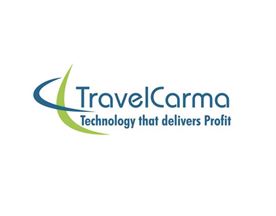
TravelCarma is a global travel technology brand, with...

FlightsLogic is a recognized leader in the travel...

Travelaps.com is an online travel portal solution for...
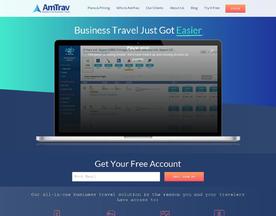
Whether you're the traveler, executive assistant, travel manager,...

Booking activities online should be as easy as...
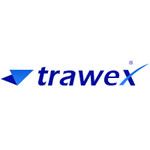
Trawex is a Travel Technology Company and we...
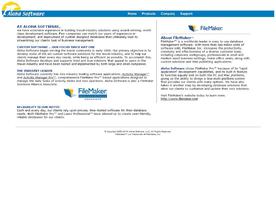
AT ALOHA SOFTWARE, we have extensive experience in...

What Does a General Manager Do: Roles and Responsibilities
What does a general manager do? A General Manager oversees operations, leads teams, manages finances, plans strategies, and ensures overall business efficiency and success. A

Turn Key Businesses: Everything You Need to Know
What are turn key businesses? Turn key businesses are ready-to-operate ventures that include everything needed to start, eliminating the hassle of setup. Just “turn the

Digital Marketing Agency for Small Businesses
What are digital marketing agency for small businesses? A digital marketing agency for small businesses helps boost online presence through SEO, social media, content creation,

Are Laundromats Profitable? A Comprehensive Analysis
Are laundromats profitable ? Yes, laundromats can be profitable with steady demand, low labor costs, and strategic location. Key to success: efficient operations and maintenance.
Privacy Overview
It's Official, Our Leads Program and Booking Portal With Over 750,000 Hotels Has Launched For Our Agents. Learn More
Travel Agent Resources
How do travel agents make money.
- X (Twitter)
By Courtney Eisen
February 22, 2024
So, you're considering a career as a travel agent and wondering how you can actually make money. What are the options available to you for maximizing your revenue? In this article, I will delve into the good, the bad, and the ugly of how travel agents earn their income. Please note that this article does not cover travel agents in salaried positions, as that is a completely different scenario. If you are seeking information on that topic, I recommend consulting resources like Glass Door for location and company-specific data. Furthermore, this article offers a unique perspective on earnings compared to what you might find elsewhere online. Our agents, in particular, earn exponentially more than the average, so this is not your typical or "average" perspective. Now that we have clarified these points let's dive in!
A brief history lesson.
If you have been researching this topic, you have likely come across various resources discussing the milestones and challenges faced by travel agents, which eventually led to the introduction of charging fees. These challenging times for travel agents began in the 90s when airlines became less supportive of the travel agent community. With the emergence of Online Travel Agencies (OTAs) like Expedia and Priceline, airlines relied less on travel agents and significantly reduced or even eliminated commission-earning opportunities. The struggles continued with major world events such as 9/11 and the COVID-19 pandemic, which caused turmoil among travelers. However, it is worth noting that agencies like ours have chosen not to adhere to outdated philosophies, further disrupting the industry for standard agents and agencies. These difficulties prompted agents to seek additional compensation for their time and explore ways to diversify their earnings. The most common solution that emerged was the introduction of fees. In fact, if you read other articles on this topic, you will find that fees are often mentioned and encouraged. However, at our agency, we take a different approach. We not only discourage charging fees but actually have a company-wide ban on them. Any agent caught charging a fee to a client is promptly removed from our agency. Why is that?
Suggested Article: How Much do Travel Agents Make?
First and foremost, we prioritize training our agents to be efficient. We teach them how to create well-thought-out, high-quality itineraries quickly, typically within 15-45 minutes. Instead of recreating the hotel's website in the form of a PDF, we utilize a more concise bullet-point format with links to the different properties. We also provide training on lead qualification. While it is true that some "tire kickers" may still approach us, the minimal time investment allows our agents to avoid losing sleep over potential "wasted time."
So why are we so strongly against charging fees? Many agents become upset when I explain this crucial point. In fact, we have been banned from numerous agent groups for expressing our views. Here's the truth: charging fees will ultimately result in lower earnings. To illustrate this, let's look at the numbers. Most agents do not earn substantial amounts of money, even when considering the highest estimates for experienced full-time agents, which still fall below six figures. On the other hand, our founder earns seven figures without charging fees. Perhaps we are onto something? While we do not accept existing travel agents, our founder, David, mentored a peer during his time at Andavo Travel. Under David's guidance, they stopped charging fees and made a few other process changes, resulting in a tenfold increase in earnings—from $25,000 to $250,000 per year. Why is that? Well, let's use common sense for a moment. Charging a fee makes you less desirable, less accessible, and more likely to lose clients to agencies like ours or booking sites. This brings us to the core of how travel agents truly make money—commissions.
Commissions: The Real Path to Earning
Yes, commissions are the primary source of income for agents. On average, agents earn between 10% and 20%, with the average commission rate hovering around 13%, on what they sell to clients. Consider a small booking of $5,000, for example. This would result in a minimum commission of $500. Completing such a booking within 15-30 minutes translates to an hourly income of $1,000 to $2,000. How is that not enough? Why would you risk losing that income by charging a fee? The issue lies in being a slow agent, which significantly reduces your earnings per hour. Now, imagine handling an ultra-luxury booking where the client spends $10,000 or more per night or a group booking with hundreds of rooms. In these cases, you have the potential to earn tens of thousands of dollars per hour, propelling you to six or seven figures in earnings much faster. While speed is important, here are some additional tips for increasing your income as an agent.
Suggested Article: Travel Agent Commissions
Be Available 24/7/365
You might be surprised to learn that many travel agents, even those who position themselves as industry insiders and experts, adhere to strict office hours. Remember the OTAs I mentioned earlier, such as Expedia? They offer immediate satisfaction to customers. Agents with limited availability cannot provide the same level of instant gratification and are, therefore, less desirable. I have encountered agents on forums who schedule new clients a week after their initial contact. During that week, clients may decide to handle the booking themselves as they witness flight prices fluctuating, usually increasing.
Suggested Article: Why You Should Be a 24 Hour Travel Agent
If you truly want to maximize your earnings as a travel agent, take this advice to heart: do not follow the path of other agents. Be modern, be smart, and be available. You may need to step out of a movie theater to assist a client, but the inconvenience can result in hundreds or even thousands of dollars. Do not keep your clients waiting. Be there for them when they want or need you, and you will become an important and reliable figure in their lives, ensuring their return time and time again.
Know the Markets
To understand how much agents earn per hour, we must consider efficiency. Familiarize yourself with your network and identify the markets that are important to both potential and existing clients. If you frequently handle trips to Mexico, for instance, you should have a solid understanding of the best properties for families, budget-seekers, luxury travelers, and adults only, among others. Having a general knowledge of hotels in popular markets will not only save you time but also provide your clients with a better and faster experience. The ability to quickly match clients with suitable properties is crucial for increasing client satisfaction and earnings per hour. However, you cannot achieve this without the next item on our list—listening to your clients!
Listen to Your Clients
Allowing your clients to express themselves will ultimately lead to higher earnings. How? Well, people will tell you exactly what they want if you give them the chance. The more you let your clients speak, the better you will understand their priorities and true desires. This understanding enables you to transform their vision into reality—a rare and beautiful achievement in the realm of travel. Once clients realize that you have turned their dreams into reality, they will return to you for their next trip. In a world filled with an overwhelming amount of information, where travelers grow weary of sifting through fake reviews, doctored images, and endless listings, you become a human-computer of sorts. You listen to your clients and swiftly match them with the perfect property in a matter of minutes. Recognizing this as your ultimate goal will significantly increase your income.
Ask for Referrals
This brings us back to the beginning. Travel agents attempted to diversify their income streams by charging fees, but this approach does not make sense in reality. To earn more money and better weather unexpected global events, it is more logical to diversify your client base. Achieving this requires actively seeking referrals. The travel industry thrives on word-of-mouth marketing, so gaining 2-3 new clients from existing satisfied clients is the most effective way to rapidly increase your earnings. Eventually, if you consistently deliver excellent service, you will be referred to ultra-high-net-worth individuals, where substantial profits can be made. We have witnessed bookings as high as $600,000 for leisure trips, resulting in a $60,000 commission from a single booking. I hope you see where I am going with this. When you have a diverse set of clients, you will be able to weather any storm. Guess who still travels during a financial crisis? Wealthy people. Need a boost in April? Your middle-class clients will be booking trips when they get their tax returns. The correct response to keeping earnings steady is not "diversifying" your income through fees but diversifying the markets you serve, which can also be done through the next step -- sell everything.
Sell Anything and Everything
You would be surprised how many agents limit their earnings by keeping their services in a niche. Some agents only sell Disney, Royal Caribbean, and Sandals. I have personally met agents who only sell international bookings. There are so many odd niche agents out there, and every time I see someone following this strategy, usually encouraged by their host agency, I ask myself, "Why?" Why would you want to pigeonhole yourself into one space? If you have a client, why not be the go to for all of their travel needs? It seems like common sense, but so many hosts encourage specialization. If you really want to maximize your income, you will find yourself booking a Royal Caribbean cruise one day and a Rosewood Hotel the next. Make your name synonymous with travel. Be the go-to for travel. Don't brand yourself as a Disney or Cruise agent. Do it all.
In Conclusion: Ignore the Noise and Make Money
To sum up, if your goal is to earn six or seven figures, joining a host agency like ours that genuinely cares about your ability to earn commissions is crucial. Our travel agent training is free, and we cover your errors and omissions insurance and licensing fees. This means that we actually incur a loss for each new recruit until they start generating sales. We will not teach you outdated and inefficient "best practices," such as charging fees or making 20-page PDFs. Instead, we will provide honest guidance, resources, and mentorship to help you understand how to truly make money as a travel agent. It is not a get-rich-quick scheme; it requires hard work and the ability to ignore advice from agents who do not earn significant incomes each year.
Suggested Article: How Do Travel Agents Get Paid?
If you do not aspire to earn much, then by all means, follow the resources that advocate for charging fees. However, if you want to maximize your earnings, join a host agency like ours that is willing to invest in your success.
More Resources

Why You Should Be a 24 Hour Travel Agent

How to Start a Travel Agency From Home
- Skip to content

Travefy Academy
Win and retain more business.
5 Ways a Travel Agent Can Make Money
By Travefy Academy
When asking how a travel agent can make money, the obvious and simple answer is that they sell travel! But in this article, we want to expand on what a travel agent can sell instead of focusing on high-level thinking of selling flight tickets or booking hotels. There’s so much more a travel agent can target and sell that the possibilities are almost endless in creating revenue as a travel business.
Commissions
The most important way that a travel agent earns money is by receiving a commission on travel sold. This can include a commission from booking flights, accommodation, tours, car rentals, entertainment tickets, insurance, and so much more. An agent will always earn a commission on selling travel but commission fees can differ based on the supplier they are purchasing from and if they are affiliated with a consortium or host agency, who will take a percentage of the commission as well.
Travel Agents can also earn more commission by selling add-ons such as additional days of travel, tours, and trip insurance. A helpful example to explain what a commission could look like is if a travel agent sold a 5 night, 6-day cruise to a couple traveling. The travel agent would earn the cruise commission but could also earn more if the travelers decide to purchase tours from the cruise line and trip insurance as well. Maybe they end up staying an extra night at the final destination too, which in return will add up in commission for the agent.
Service Fees
In addition to receiving commissions when booking travel, many travel agents will also have a set service fee they charge to all clients. This can look different for all travel agents. An agent might have a service fee they charge (ranging from $100-$250+) for all trips or offer a fee just to help plan the travel.
Pro Tip: Not charging a fee? Check out our article on charging fees here to see if charging a fee is right for you.
Instead of booking all of the travel for a client, travel agents can also charge clients just to do the planning and itinerary building and let the client book travel on their own. Travel agents might charge a flat “planning” fee and then just hand over the travel plans to the client once they are finished and that’s all they will do.
Group Tours
Planning group tours as a travel agent can be a popular money avenue because of the large number of travelers at one time. A lot of travel agents will specialize in group travel whether that is planning family reunions, destination weddings, hobby travel, sports travel, you name it!
As an example, a travel agent might book 50 cabins on a cruise and work on filling each cabin. They might focus on a niche like a certain hobby or event that would help encourage many people to book a cruise at the same time. That way, the agent earns a commission on 50 cabins instead of 1 when a traveler books a one-off trip.
There are a lot of agents who will only do group travel since the value of earning a large income is so high. Some agents may even focus on planning 1-2+ large travel groups a year and earn their yearly revenue just by that alone. The possibilities are truly endless when it comes to group travel which brings us into our next way of making money: Niche Travel. Combining a niche with group travel can be a great way to earn a lot of money from one trip.
Niche Travel
Another popular income source for travel agents is focusing on a niche so that they can create group trips or become a go-to source when a traveler is looking for a particular travel experience. Many agents even have two businesses under one umbrella where they will sell travel to anywhere in the world but also have a side that is dedicated to a niche. As an example, a travel agent might sell a lot of resort packages and cruises but then have a second business just for wine and food travel.
Even though there are hundreds of different niche travel options, here are a few to give you an idea of what niche travel can look like:
- “Surprise” Travel: This has been a growing sensation for many travelers. Surprise Travel is when a travel agent books an entire trip for someone but the traveler doesn’t know where they are going until the day before or when they get to the airport!
- Sports Travel: An agent might rent a charter bus and find 50 people who are interested in traveling to a sports game and book hotels, activities, and transportation for the group.
- Destination Weddings and Honeymoons: If weddings and honeymoons are your jam, this is a great option for you!
- Disney: Many agents focus solely on Disney experiences and these agents live and breathe it. They know all the in’s and out’s of each park and can help customize your trip to fit your families needs.
- Special Needs: Focusing on a demographic can help when choosing a niche. Someone who focuses on special needs travel will be a pro at knowing what to look for when booking, what types of accommodation might need to be made, where to rent equipment, and so much more. For more information on this type of niche, check out our webinar here .
Above are just a few examples but there are so many different niches available and many that haven’t even been thought of yet. If you’re interested in niche travel, ask yourself where your passion lies and see what types of travel experiences can come from that.
Corporate Travel
Focusing on corporate travel is another option for your travel business. Instead of booking leisure travel, some agents will only work with corporate clients. This can be a great option because you will have your main clients and know that you will continuously be booking travel just for them. Booking corporate travel mostly includes booking flights, accommodation, and rental cars but since you know that the quantity is greater, you can end up making great revenue from commissions in return. Corporate travel can also include booking incentive travel or group retreats and events.
.png?width=333&height=100&name=WORLDVIA%20TRAVEL%20QUEST%20NETWORK%20LOGO%20(1).png)
The Truth About Becoming an Independent Travel Agent
It’s scary taking the first leap into the depth of self-employment without any clue on where to go from there. The good news is, you’re off to a solid start.
You did the hard part: you decided to embark on a new career path. Now, dig up that list of requirements for your “ideal job,” and it might read a little something like this:
Flexible schedule
Long-term career
Helps people
Comfortable
No cubicle!
Supportive network
Awesome travel benefits
This sounded crazy when you started writing it, but now, you realize this is actually achievable. These traits are basically a mirror image of the benefits you’d have in a career as an independent travel agent. So how do you turn this dream into a reality? It’s a challenge trying to sift through all the advice out there to find clear instructions on how to become an independent travel agent. That’s why we’ve filtered through the resources to provide you with the truth, challenges and all, so that you can take your next steps.
What is an Independent Travel Agent?
The perks of being your own boss are quick to entice, but before you start ordering your business cards, it’s important to understand the basics. We’ll start with one of the most important questions: What is an independent travel agent? If you break down the job title word-for-word, you can easily get a sense of what your role as an independent travel agent will be. “Independent” refers to being self-employed. You are your own boss, akin to a contracted worker, and therefore are not technically an employee of any other agency. Obviously, you work in the field of travel, creating customized itineraries for trips by offering the best recommendations for every aspect along the way. Travel agents can narrow the scope of this definition by specializing in a niche, like honeymoons, luxury, family, adventure, European, or multigenerational vacations. As an agent, you are a trusted resource from which clients learn about travel and travel services. It is your responsibility to build relationships with suppliers around the world so that you can offer their services. Of course, a love of travel is a necessary passion to become an independent travel agent, but it will not be your defining feature. More than anything, an independent travel agent is a salesperson. You will be working off of commission after all. However, because travel is an intimate and expensive endeavor, your purpose will not be to get your clients to book as quickly as possible. Instead, you have to provide them with all of the tools at your disposal to plan the best trip possible.
Are You Ready to Become an Independent Travel Agent?
One of the great things about becoming an independent travel agent is that it can be done from anywhere. That being said, it takes more than giving yourself the title to succeed. As an independent travel agent, your clients rely on your experience and advisement. Don’t worry, there is no need to start counting all of the stamps in your passport. While it is helpful to be well-traveled, it is more important that your travel knowledge is driven by your passion for it. You are the expert, and you must convey your expertise through confidence in what you are selling. Beginning with prior sales experience and an entrepreneurial spirit will get you far. Whether you served in a restaurant or worked in a retail store, those customer service experiences will all work toward your success. If you don’t know where to start, try offering up your travel agent skills to the people you are already connected with. Become the one creating detailed itineraries. Learn to anticipate people’s needs. This experience will help build your rapport with future clients.
3 Major Benefits of Becoming an Independent Travel Agent
One word: Independence. It is something everyone craves in their career, but few are able to experience it completely while working as an employee. As a contracted worker you have complete control over when, where, and how you conduct business. Whether you work from home or decide to rent a private office space, it is completely up to you. You make the rules. The freedom of being your own boss may have drawn you to learn how to become an independent travel agent. But it is not the only perk of this profession. Here are a few more benefits that you can take advantage of:
Steady income: According to Statista, revenue from travel agencies is expected to reach over $17 billion by 2020. There is a large earning potential for independent travel agents since your income is comprised of commission, service fees, and consultation fees. Also, as an at-home agent, you are eligible for tax deductions.
Travel perks: Also known as FAM trips. These “familiarization” trips are provided at reduced rates by suppliers. The purpose is to use the trip as a learning tool to understand the supplier’s services and products. In addition, FAM trips will give you firsthand knowledge to pass down to your potential clients and a chance to learn the tricks of the trade.
Travel discounts: Travel agents also enjoy a wealth of discounts from hotel stays to renting a car. One way to start generating discounts is to legitimize yourself with an IATA card.
Among the tangible benefits, becoming an independent travel agent is also a fulfilling career choice. People are choosing you to plan one of the best experiences of their lives, and that is rewarding.
The True Challenges of Becoming an Independent Travel Agent
Be forewarned, though the benefits heavily tip the scale in one direction, there are challenges to becoming an independent travel agent just like any other profession. One of the main hurdles is the investment of time and money you must make when starting out. There are start-up costs, host agency fees, and other upgrades you may need to consider. As a contractor, you do not receive traditional employee benefits. The payment structure for independent travel agents may take time to get used to as well. It is commissioned-based, and often, those commissions are not paid to you until after your client returns from their trip. It takes time to build your business. Becoming an independent travel agent is a long-term endeavor, and if you are willing to put in the time, it can be your career for life.
What Becoming an Independent Travel Agent is All About
Independence does not mean that you are alone. One of the common misconceptions about this career choice is that you will have no support. However, the role of an independent travel agent is defined by their relationships. Relationships with your clients, suppliers, and most importantly your host agency, are all essential components of your success.
Client Relationship
You can think of your role as an independent travel agent more like a consultant. Your clients, both new and returning, will rely on the recommendations you give them when planning their soon-to-be cherished experiences. This relationship requires a large amount of trust, understanding, and openness. On your part, it is also about listening and reading people to provide them with experiences they will love. Fostering these relationships is what will secure your business.
Supplier Relationship
The largest portion of your income will derive from booking with suppliers. Remember the FAM trips you took advantage of? More than anything, those trips are learning experiences. Suppliers and independent agents work together to compile the perfect trip for each client. As an independent travel agent, it is up to you to understand what type of vacation packages you are offering so you can advise based on true experience. Agent-supplier relationships are beneficial to everyone. You will have first-hand knowledge to pass down to each client so that together, you can plan the best experience possible. Plus, the more clients you send, the more both you and the supplier financially benefit.
Host Agency Relationship
In your quest to become an independent travel agent, finding the right host agency is like finding the North Star. The right agency will work with you, guiding you through the challenges, and creating a clear path for success. Host agencies are a key partner to help you become a successful independent travel agent. They help legitimize you as an agent, especially early on, and provide access to resources and their established network. Host agencies can also provide marketing and promotional materials, training, recording keeping, and support along the way.
How to Build the Perfect Travel Agent/Host Agency Relationship
Now that you know the truth about becoming an independent travel agent, it’s time to take the first step: finding the right host agency. While the importance of a fair commission should not be downplayed, it is vital to factor in other characteristics of your potential host agency that are just as important. Not all host agencies are created equal. They vary greatly in their size, benefits, and dedication to their agents. When researching the best agency for you, it is important to ask yourself:
What size agency do I want to work with?
Do they offer training?
Are there marketing opportunities?
What is the agent/agency relationship like?
Everyone has different goals. That’s why when you’re starting out as an independent travel agent, your goals should align with the agency you choose. When Travel Quest Network began hosting agents in 1998, they made sure that working closely with their agents to reach a common goal was the focus of their business. Today, they continue to fulfill that goal by serving over 1,200 agents in the US. Travel Quest Network offers training, technology resources, marketing, and flexible pricing plans that range from 70-100% commission in the agent’s pocket.
Recent Posts
- All Categories
- solopreneur
- finance & legal
- press release
- entrepreneur
- business planning

- What is a visa?
- Electronic Visa (eVisa)
- Visa on Arrival
- Appointment Required Visa
- Invitation Letter
- Arrival Card
- Passport Renewal
- Project Kosmos: Meet the man with the world's most challenging travel schedule
- Australia Visa and ETA requirements for US citizens explained
- Brazil eVisa for US citizens
- India Tourist Visa for UK citizens
- Possible B1/B2 Visa questions during the interview
Select Your Language
- Nederlandse
- 中文 (Zhōngwén), 汉语, 漢語
Select Your Currency
- AED United Arab Emirates Dirham
- AFN Afghan Afghani
- ALL Albanian Lek
- AMD Armenian Dram
- ANG Netherlands Antillean Guilder
- AOA Angolan Kwanza
- ARS Argentine Peso
- AUD Australian Dollar
- AWG Aruban Florin
- AZN Azerbaijani Manat
- BAM Bosnia-Herzegovina Convertible Mark
- BBD Barbadian Dollar
- BDT Bangladeshi Taka
- BGN Bulgarian Lev
- BIF Burundian Franc
- BMD Bermudan Dollar
- BND Brunei Dollar
- BOB Bolivian Boliviano
- BRL Brazilian Real
- BSD Bahamian Dollar
- BWP Botswanan Pula
- BZD Belize Dollar
- CAD Canadian Dollar
- CDF Congolese Franc
- CHF Swiss Franc
- CLP Chilean Peso
- CNY Chinese Yuan
- COP Colombian Peso
- CRC Costa Rican Colón
- CVE Cape Verdean Escudo
- CZK Czech Republic Koruna
- DJF Djiboutian Franc
- DKK Danish Krone
- DOP Dominican Peso
- DZD Algerian Dinar
- EGP Egyptian Pound
- ETB Ethiopian Birr
- FJD Fijian Dollar
- FKP Falkland Islands Pound
- GBP British Pound Sterling
- GEL Georgian Lari
- GIP Gibraltar Pound
- GMD Gambian Dalasi
- GNF Guinean Franc
- GTQ Guatemalan Quetzal
- GYD Guyanaese Dollar
- HKD Hong Kong Dollar
- HNL Honduran Lempira
- HTG Haitian Gourde
- HUF Hungarian Forint
- IDR Indonesian Rupiah
- ILS Israeli New Sheqel
- INR Indian Rupee
- ISK Icelandic Króna
- JMD Jamaican Dollar
- JPY Japanese Yen
- KES Kenyan Shilling
- KGS Kyrgystani Som
- KHR Cambodian Riel
- KMF Comorian Franc
- KRW South Korean Won
- KYD Cayman Islands Dollar
- KZT Kazakhstani Tenge
- LAK Laotian Kip
- LBP Lebanese Pound
- LKR Sri Lankan Rupee
- LRD Liberian Dollar
- LSL Lesotho Loti
- MAD Moroccan Dirham
- MDL Moldovan Leu
- MGA Malagasy Ariary
- MKD Macedonian Denar
- MNT Mongolian Tugrik
- MOP Macanese Pataca
- MUR Mauritian Rupee
- MVR Maldivian Rufiyaa
- MWK Malawian Kwacha
- MXN Mexican Peso
- MYR Malaysian Ringgit
- MZN Mozambican Metical
- NAD Namibian Dollar
- NGN Nigerian Naira
- NIO Nicaraguan Córdoba
- NOK Norwegian Krone
- NPR Nepalese Rupee
- NZD New Zealand Dollar
- OMR Omani Rial
- PAB Panamanian Balboa
- PEN Peruvian Nuevo Sol
- PGK Papua New Guinean Kina
- PHP Philippine Peso
- PKR Pakistani Rupee
- PLN Polish Zloty
- PYG Paraguayan Guarani
- QAR Qatari Rial
- RON Romanian Leu
- RSD Serbian Dinar
- RUB Russian Ruble
- RWF Rwandan Franc
- SAR Saudi Riyal
- SBD Solomon Islands Dollar
- SCR Seychellois Rupee
- SEK Swedish Krona
- SGD Singapore Dollar
- SHP Saint Helena Pound
- SLL Sierra Leonean Leone
- SOS Somali Shilling
- SRD Surinamese Dollar
- SVC Salvadoran Colón
- SZL Swazi Lilangeni
- THB Thai Baht
- TJS Tajikistani Somoni
- TOP Tongan Pa anga
- TRY Turkish Lira
- TTD Trinidad and Tobago Dollar
- TWD New Taiwan Dollar
- TZS Tanzanian Shilling
- UAH Ukrainian Hryvnia
- UGX Ugandan Shilling
- USD United States Dollar
- UYU Uruguayan Peso
- UZS Uzbekistan Som
- VND Vietnamese Dong
- VUV Vanuatu Vatu
- WST Samoan Tala
- XAF CFA Franc BEAC
- XCD East Caribbean Dollar
- XOF CFA Franc BCEAO
- XPF CFP Franc
- YER Yemeni Rial
- ZAR South African Rand
- ZMW Zambian Kwacha
We've updated our app!
Download it now
How to Make Money as a Travel Agent

There is no question that travel has been one of the hardest-hit industries throughout the pandemic. With travel contributing over $1.1 trillion to the US’s GDP news of a vaccination provides welcome relief. The demand to travel is still high and according to CNBC “more than half of U.S. consumers say they will travel on vacation later this year.” So travel agents get ready and expect a booking boom.
How much money do travel agents make?
This comes down to certain factors such as the type of clients, level of expertise and the ability to offer specialized services. According to Indeed, the average salary of a travel agent in the US is $49,608 but there are many making up to six-figure incomes. Different types of employment for a travel agent:
- Working as an employee,
- Working through a franchise
- Setting up an independent business
Whichever employment bracket you fall into there are multiple ways to generate income, so let’s break down the most common ways to make money as a travel agent:
Whatever service you book for your client will earn a commission; this works on a percentage basis and can come from booking hotels, cruises, restaurants, tours or car hire, etc. When you work as an employee the commission is usually paid directly to your employer and will be recorded and paid to you at the end of the month.
Service Fees
Pre-1990s a huge chunk of income was made through airfare, but this commission was abruptly cut when technology evolved and customers were able to book their tickets online. Now it is common practice to charge clients a service fee when booking flights. The same charge can be applied when booking vacations, hotels or cruises. As you are offering a professional service, it therefore requires a fee. Service fees can be charged at an hourly rate or as a flat fee, all dependent on your preference.
Consulting fees
Many other industries charge consulting fees, so why should travel be any different? By marketing yourself as a travel consultant you are sharing your expertise and should charge accordingly. Creating itineraries requires time and research, so a consultant fee will be applied. Group bookings can be a logistical nightmare so having someone manage the process for a fee will also be welcomed.
Net/Private Fares
A travel agent can purchase private fares in advance from a vendor: you buy the fares low, mark them up and sell high. This will prove particularly lucrative around the holiday period and also for business travellers who are willing to spend more to stick to their schedule.
Specialized Services
Today travellers want to explore new and unique places so you might choose to specialize in a specific area. For example, destination weddings involve large groups offering a larger revenue opportunity. Also, couples are more likely to spend big money on their honeymoon with far off and exotic destinations being the preference, you will be working with bigger budgets resulting in a higher travel agent commission.
Other areas to consider specializing in are:
- Adventure holidays
- Specific age groups.
- Corporate travel
- Solo travel
- Sustainable travel
- Specific destinations and regions.
Specializing will make you stand out from the crowd meaning clients will pay for your knowledge and expertise.
Strategic Partnerships
Customers booking their travel independently can result in huge savings. It can, however, leave the customer unprotected should anything go wrong. During these uncertain times safety will be paramount, so booking through an agent provides reassurance.
Therefore, this is the perfect time to promote travel documentation services with your packages. From visas to health declarations, third-parties can provide all the information needed to ensure a successful entry to the destination. At iVisa.com , we provide to our partners a competitive commission rate, allowing them to earn more.
This is also the perfect time to promote travel insurance plans. Travel insurance is one of the highest commission products you can sell. By forming a partnership with a Travel Agent Program it allows you to offer the right travel insurance plan.
For extra self-marketing, you can form partnerships with local businesses, charities, or trade shows and ultimately promote your business and attract new clients.
Premium Listings
If your website generates a lot of traffic you may want to consider selling advert space on your site. This could be other way to make money as a travel agent. Many travel companies will pay extra for a premium listing, as statistically, it can increase their exposure by up to 50% and will also generate you an additional source of income.
Incentives/Perks
Travel agents over time build relationships with vendors, cruise lines, hotels, and airlines, etc. By utilizing these connections you will be able to not only offer your clients a competitive price but tempting extras such as business class seats and room upgrades.
With constant restrictions and travel bans, this has resulted in an unprecedented amount of cancellations. The larger vendors have been swamped with refund requests leaving many customers unable to get through to an actual person and resolve their issues. With customers prioritizing security for future travel, this is where travel agents will have the advantage. Agents provide a personal point of contact should a situation change and will result in building long-lasting relationships with clients.
Related Articles

12 things you need to know about security, visa, and immigration experiences in Africa

The world's 8 easiest countries to get a visa
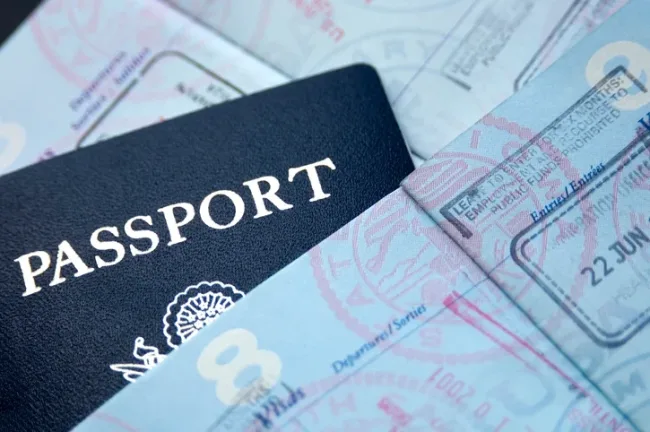
What are passport endorsements?

Tips For Independent Travel Agents On Tax Filing
T here are several tax filing considerations that you as an independent travel agency need to keep in mind. You are considered self-employed, which means you must handle your own taxes, which is one of the most crucial things to keep in mind since, in contrast to conventional workers, you are.
In order to maximize their tax savings and file their taxes, independent contractors like travel agents may run into problems. When selling hotel reservations, vacation packages, and other travel-related goods, many travel agents operate on a project-basis and make money. Because of the possibility of seasonal employment, revenue fluctuations may sometimes occur. The 1099 tax rate and form (and/or a w2 template if you find yourself working as an employee with any business), quarterly tax calculator, and self-employment tax calculator are thus essential tools that may assist you in making wise tax choices.
For independent travel agencies paying taxes, consider these suggestions:
1. Learn the tax regulations
In order to file taxes as an independent travel agency, you must first get familiar with the tax regulations that relate to your industry. Read the IRS publication on small enterprises and self-employed persons to learn how to record your income, deductions, and credits.
For independent travel brokers, it’s important to remember the following tax regulations:
-Unless you request an extension, you must submit your yearly tax return by April 15th and pay any taxes that are required.
– You are required to record all revenue you get from your travel agency, including 1099-style payments.
– Self-employment taxes, also known as Social Security and Medicare taxes, are due by self-employed people and now represent 15.3% of their net income. These taxes cover both the employer and employee components of Social Security and Medicare.
2. Recurring business costs should be monitored
Being a self-employed travel agent has several advantages, including the ability to deduct numerous company expenditures from taxable income, which may reduce your tax burden. You may write off certain costs, such as:
– Costs associated with running an office, such as rent, utilities, and supplies.
– Costs associated with traveling, such as lodging and rental vehicles.
– Marketing expenditures, including web hosting and advertising.
– The cost of your phone, camera, and computer equipment.
Maintaining precise records of all your company expenditures is crucial to ensure you don’t overlook any deductible costs. This is especially important because these agencies are exempt from some taxes, and you can learn more about the tour operators margin scheme if you live in Britain, for example. You may maintain a record of your expenditures in a spreadsheet or notepad, or you can use accounting software to manage your costs automatically.
3. Calculate the tax rate on your 1099 form
You get 1099 forms from your customers when you work as a self-employed travel agent, which implies that taxes are not deducted from your salary. Taxes on your income must be paid by you instead. Using a 1099 tax rate calculator is a fantastic idea to make sure you are allocating the right amount of money for taxes.
Based on your income and deductible costs, the calculator will help you establish your tax obligation. In order to assist you avoid underpayment penalties, it will also figure out the projected tax owed for each quarter.
4. Calculate the self-employment taxes
The self-employment taxes, which include Social Security and Medicare taxes, must be paid by self-employed people, as was previously noted. Use a self-employment tax calculator to get a rough idea of your taxes for being self-employed.
With the help of the tool, you can determine how much money you’ll need to put aside for self-employment taxes and an estimate of your tax liabilities depending on your net income. Remember that the self-employment tax rate is presently 15.3%, which includes 12.4% for Social Security and 2.9% for Medicare.
5. Maintain your tax payments on time each quarter
Quarterly anticipated tax payments are necessary if you anticipate owing more than $1,000 in taxes for the whole year. Penalties and interest fees may be assessed if these payments are not made.
Using a quarterly tax calculator to calculate your estimated tax bill for each quarter is crucial to ensuring that you pay your taxes on time and avoiding underpayment penalties. When the time comes to submit your taxes, this will help you prevent any surprises.
For independent travel brokers, handling taxes may be a huge hassle. But you can reduce the stress and increase your tax savings by being informed with tax laws, keeping track of your company spending, utilizing a 1099 tax rate calculator, calculating self-employment taxes, finding tax deductions and staying on top of quarterly tax payments. You can make sure you are remaining in compliance and choosing wisely when it comes to taxes for your travel company by heeding the advice in this guide.
The post Tips For Independent Travel Agents On Tax Filing appeared first on Mom and More .
![There are several tax filing considerations that you as an independent travel agency need to keep in mind. You are considered self-employed, which means you must handle your own taxes, which is one of the most crucial things to keep in mind since, in contrast to conventional workers, you are. In order to maximize their […] There are several tax filing considerations that you as an independent travel agency need to keep in mind. You are considered self-employed, which means you must handle your own taxes, which is one of the most crucial things to keep in mind since, in contrast to conventional workers, you are. In order to maximize their […]](https://img-s-msn-com.akamaized.net/tenant/amp/entityid/AA1lagxH.img?w=768&h=1152&m=6)
- Credit cards
- View all credit cards
- Banking guide
- Loans guide
- Insurance guide
- Personal finance
- View all personal finance
- Small business
- Small business guide
- View all taxes
You’re our first priority. Every time.
We believe everyone should be able to make financial decisions with confidence. And while our site doesn’t feature every company or financial product available on the market, we’re proud that the guidance we offer, the information we provide and the tools we create are objective, independent, straightforward — and free.
So how do we make money? Our partners compensate us. This may influence which products we review and write about (and where those products appear on the site), but it in no way affects our recommendations or advice, which are grounded in thousands of hours of research. Our partners cannot pay us to guarantee favorable reviews of their products or services. Here is a list of our partners .
How to Get the Best Car Insurance

Many or all of the products featured here are from our partners who compensate us. This influences which products we write about and where and how the product appears on a page. However, this does not influence our evaluations. Our opinions are our own. Here is a list of our partners and here's how we make money .
For a lot of people, buying car insurance is like buying sliced bread. It’s not the most exciting purchase, and the options all seem similar. So thrifty shoppers might simply reach for the cheapest thing on the shelf. But like cheap bread, cheap car insurance may leave you wishing you spent a little more on quality.
“The cheapest is not always the best,” warns Jessica McNally, an agency owner with Goosehead Insurance in Dallas. That’s because there are lots of factors that make up a car insurance company. And while price is one of them, it’s best to look at the bigger picture.
Here’s what to look for when picking the best car insurance company.
1. Choose a financially stable company
The best car insurance companies have plenty of money on hand to pay for customers’ claims. It’s important to check an insurer’s financial stability before buying a policy, especially if it’s a smaller insurer you’ve never heard of.
There are several independent agencies that evaluate the financial strength of insurance companies. One example is A.M. Best. You can use its online search tool to find an insurer’s financial strength rating. Companies with a rating of A or higher are considered to have an excellent ability to pay out customer claims.
2. Check customer satisfaction ratings and reviews
Not every insurer is customer-first. That’s why it’s important to research the customer satisfaction of insurers you’re considering.
You can turn to surveys from companies like J.D. Power to find insurers with the best customer satisfaction scores [0] J.D. Power . Auto Insurance Customer Satisfaction Plummets as Rates Continue to Surge, J.D. Power Finds . Accessed May 21, 2024. View all sources . Or, if you don’t mind doing a little detective work, you can compare customer complaints against insurers by using the National Association of Insurance Commissioners’ website . But take other people’s emotionally charged comments about companies or agents you might read online with a grain of salt, McNally advises.
3. Look for convenience
A great auto insurer should offer multiple ways to manage a policy. For example, some insurers allow customers to use a mobile app to file and track claims. But it’s hard to tell how simple it’ll be to file a claim or perform other essential tasks, like paying your premium, before becoming a customer.
Some telltale signs that an insurer will be easy to work with are high mobile app ratings, flexible customer service hours and an easy-to-use website with helpful content. Consider asking a company representative to walk you through the claims process to learn what you’ll need to do if you have to file a claim. And pay attention to how the company communicates with you. "If they don't properly communicate, well, that's a warning sign," says Michael DeLong, a research and advocacy associate for the nonprofit Consumer Federation of America.
4. Pick an affordable company
Car insurance premiums are stretching to record-breaking heights [0] U.S. BUREAU OF LABOR STATISTICS . Consumer Price Index for All Urban Consumers (CPI-U) . Accessed May 21, 2024. View all sources , and almost half of U.S. consumers shopped for a new car insurance policy in the past year, according to an April 2024 report by J.D. Power [0] J.D. Power . Half of Auto Insurance Customers Currently Shopping for New Policies, J.D. Power Finds . Accessed May 21, 2024. View all sources . The best car insurance companies offer competitive rates and a variety of potential discounts.
It’s not hard to get car insurance quotes online from many companies. Make sure you compare the same coverage options throughout the quote-gathering process. And don’t forget to look for car insurance discounts, like breaks for being a good driver, paying your premium in full or driving a new car.
More tips to find the best car insurance
When shopping for the best car insurance, keep the following tips in mind.
Assess your needs. Before buying car insurance, take a moment to reflect on what’s important to you and your family. For example, maybe you prioritize affordability and a well-polished mobile app, but don’t need accident forgiveness .
Consider small insurers. There are lots of small insurance companies you’ve probably never heard of. These regional insurers may provide lower rates and better customer service than the big companies you see advertised on TV.
Work with an independent agent. While it may be easy to get quotes yourself, independent car insurance agents and brokers can streamline the process. These experts vet companies and compile quotes from small and large insurers on your behalf. Independent agents and brokers can especially come in handy if you have a less-than-perfect driving record and can’t find insurance on your own.
Do your research. Search online for recent mentions of a company in the news before buying a policy, recommends DeLong. If you find a company has lots of recent lawsuits against it, you may want to think twice about signing on the dotted line. “And if they've had to pay out settlements, that's an even bigger red flag,” DeLong says.
Shop around once a year. Make a practice of shopping for car insurance every year — especially if price is important to you. Insurers adjust car insurance rates regularly, so what might have been the most affordable option last year may no longer be a bargain.
On a similar note...
Free car insurance comparison
Instantly compare top auto insurance companies.

Money blog: Manchester United staff 'given week to resign' in WFH crackdown
Manchester United staff have reportedly been given a week to decide whether to resign under Sir Jim Ratcliffe's plans to end working from home. Read this and the rest of today's consumer and personal finance news in the Money blog below, and leave your thoughts in the comments box.
Wednesday 29 May 2024 16:37, UK
- Get your holiday money now! Pound hits nearly two-year high against euro
- Popular broadband provider hiking monthly payments from July
- Manchester United staff reportedly given week to resign in Sir Jim Ratcliffe's WFH crackdown
- Spotify launches cheaper deals - but there's a catch
- UK has highest diesel prices in Europe
Essential reads
- Head chef at UK's number one gastropub shares favourite cheap pasta recipe
- Women in Business : 'A truck unloaded a £600 car that her son bought on eBay thinking it was a toy' - the schoolgate stories that led to GoHenry
- Money Problem : 'My mortgage lender is ending my two-year fix and I haven't been in the house for two years - can they do this?'
- Best of the Money blog - an archive
Ask a question or make a comment
NOW Broadband is raising prices by an average of £3 a month from 5 July.
The company, owned by Sky, didn't raise prices in line with inflation in April - making it somewhat of an outlier.
But the summer raise will add an average of £36 a year to customer bills.
However, the company offers a no-penalty exit option.
Sabrina Hoque, telecoms expert at Uswitch.com, said: "Another mid-contract price increase unfortunately means bigger bills for already cash-strapped consumers.
"However, it is encouraging that NOW Broadband customers have the option to leave penalty free if they don't want to accept this change."
By Sarah Taaffe-Maguire , business reporter
The pound reached a 19-month high against the euro this morning as £1 equalled €1.1784.
Not since late August 2022 was sterling so strong against the currency of Eurozone states.
So if you're going on holidays to somewhere using the euro, now would be a good time to exchange pounds as you'll be getting more for your money than you would have.
Rates have come down slightly this afternoon - though are still high at €1.1746.
The pound buying more euro will mean it's cheaper for UK importers to buy goods - so some prices could come down.
It's happening because the interest rate-setters at the European Central Bank (ECB) look set to bring rates down at their meeting next week.
Manchester United staff have reportedly been given a week to decide whether to resign under Sir Jim Ratcliffe's plans to end working from home.
The club's non-football staff were invited to take redundancy by next Wednesday in an email sent on Tuesday, The Daily Telegraph reports .
Sir Jim has taken over the day-to-day running of the club and is making it compulsory for staff to work from their offices in Manchester or London from 1 June, the paper says.
Staff who do not wish to do so can quit and are being offered early payment of an annual bonus, it added.
A United spokesman told The Daily Telegraph the move "isn't a voluntary redundancy programme".
They added: "The club recognises that not everyone wants to work from the office full-time so has provided options for staff who don't wish to return to the office to step away now."
Sky News has contacted Manchester United for comment.
Junior doctors in England are set to strike for five days starting next month - part of a long-running dispute over pay.
The strike is set to run from 7am on 27 June to 2 July.
It means the dispute clash with the general election campaign, with polling day on 4 July.
Read the full story here ...
Parents see personal finance as a more important life skill than maths for schoolchildren, according to new research.
A poll by Nationwide suggests the majority (89%) of parents of children aged eight to 13 think finance education would help their kids understand the value of money.
The survey of 2,000 UK adults found that personal finance even ranked above maths, digital skills and cooking as vital skills for children - coming second only to literacy.
More than eight in 10 parents (84%) said their child hadn't had any finance education at school, despite the vast majority saying it was important for children to understand money.
The top subjects parents value at school are:
- Literacy (66%)
- Personal finance (59%)
- Maths (51%)
- Cooking (41%)
- Digital skills (26%)
Personal finance was deemed the most important subject for children and young people among parents polled in Brighton, Belfast and Newcastle.
Amanda Beech, director of retail services at Nationwide, said financial education can "help young people get to grips with the world of money".
By Daniel Binns, business reporter
One of the big gainers on the stock market this morning is International Distributions Services, the owner of Royal Mail.
Shares in the company are up more than 3% on the FTSE 250 index after the company's board announced it had agreed to a takeover by "Czech Sphinx" Daniel Kretinsky.
Read more on that here...
While the deal is yet to be approved by shareholders and regulators, investors are clearly excited at the prospect of the £3.6bn agreement.
At the other end of the scale, online delivery firm Ocado has plunged more than 6% in early trading.
It comes after reports that it is a leading candidate to be relegated from the FTSE 100 - along with asset manager St James's Place, which is down 1.6%.
The FTSE 100 overall is down 0.2% this morning amid ongoing uncertainty over interest rate cuts in the US.
Gainers include mining firm Fresnillo and water firm United Utilities, which are both up more than 2.4%.
On the currency markets, £1 buys $1.27 US or €1.17 - similar to yesterday.
A barrel of benchmark Brent crude has climbed to almost $85 (£66.60) this morning, a rise of nearly 1%.
Spotify subscribers have the chance to nab a slightly cheaper deal after it quietly launched new plans - but you'll have to be willing to give up one thing.
If you pay for an individual, duo or family subscription, you can save up to £24 a year by switching to one of the music platform's new "basic" plans, according to Money Saving Expert .
The catch, though, is that you'll lose audiobooks. All the other benefits such as no ads, song downloads and higher-quality audio will remain for existing subscribers.
The "basic" plans are the same price as Spotify's premium options used to be before it hiked prices last month. Most of the premium plans include 15 hours a month of audiobook listening time.
Only existing Spotify subscribers can get the new basic option for now - there's no date set for when they'll become available to everyone, Money Saving Expert said.
Every Wednesday we ask Michelin chefs to pick their favourite Cheap Eats where they live and when they cook at home. This week we speak to Dave Wall, head chef at the UK's number one ranked gastropub, The Unruly Pig in Suffolk.
Hi Dave , c an you tell us your favourite places in Suffolk where you can get a meal for two for less than £40?
Honey + Harvey . A cracking spot for breakfast, brunch or lunch. They have the most delicious coffee and a cracking full English, the vibe is super-chilled and laidback and I always feel so relaxed there.
Lark . A beautiful little independent restaurant in Bury St Edmunds with the most incredible selection of small plates and top-drawer cooking. Admittedly, I find myself spending a fair bit more than £40 at Lark because I love James Carn's cooking so much that I end up going way over the top and ordering far too many dishes.
What's your go-to cheap meal at home?
Anchovy pasta is one. I get that anchovy is often considered a Marmite ingredient. I love them, but if you are in the "hate" camp, then please bear with me, as I want to persuade you to give these versatile little wonders a second look (and perhaps not tar all anchovies with the same brush).
My recipe below uses both brown and brined anchovies. It is an easier but still utterly delicious version of the dish I've served at The Unruly Pig (which also comes with an oyster velouté). This is comfort food at its best. Buon appetito!
- 250g butter
- 70g brown anchovies (ideally Cantabrian)
- 1 clove garlic
- 30g double cream
- 25g of brined anchovies
Add all the ingredients to a pan. Bring to a slow simmer on a low heat. Once the mixture starts to boil, remove, and transfer to blender. Blend for two minutes until the mixture is well emulsified. Set aside.
Pangrattato
Three bread slices, crusts removed (staler the better)
- 1 garlic clove
- 1 lemon zest
- Pinch salt & pepper
Blend all the ingredients in food processor, making sure the crumb is fine. On a low heat, gently toast the crumbs until they become golden.
- 125 g of fresh spaghetti per person
- Grated Parmesan, brined anchovy, celery leaf to garnish
Gently the cook the pasta in simmering boiling water, add plenty of salt to the pasta water so it tastes like sea water. Cook for 1-2 minutes - or to instructions if using dried.
Bring it all together
Meanwhile, gently heat the anchovy pasta sauce in a large pan so it becomes warm. Be careful not to boil. Once the pasta is cooked, gently remove and put it straight in to the warmed anchovy sauce. Add a splash of the pasta water to retain some of the starch (as this will help thicken your sauce).
Gently cook the pasta in the anchovy sauce until it becomes thick and creamy, and the sauce coats the pasta. Serve into a bowl and add the Parmesan, fresh anchovies and celery leaf on top.
Generously sprinkle the pasta with the golden pangrattato to add a wonderful texture and crunch.
We've spoken to lots of top chefs and bloggers - check out their cheap eats from around the country here...
Beach-goers in Cumbria have been warned they could face a fine of up to £1,000 if they remove pebbles or shells across the area.
Cumberland Council has told visitors it is unlawful to take natural materials such as sand, shells and pebbles from the beach under the Coast Protection Act.
Cumberland councillor Bob Kelly said it was important to "ensure that our beaches remain vibrant and intact for future generations".
"I understand people's reluctance to follow this guidance, as I have been a collector of shells myself. But taking a pebble or a shell from a beach can in fact damage the environment," he said.
"Pebbles and other natural matter act as a natural sea defence against coastal erosion, natural flood defences and wildlife habitats, which many experts warn has become even more of an issue due to climate change."
People are spending more on holiday than they were two years ago, the latest data from ABTA Travel Money has shown.
On average, UK travellers are spending £369 each during a short break abroad - up more than £59 since 2022.
For a longer break, the typical amount rises to £660, which is up £231 a person since 2022.
Families with children over five are likely to spend the most while on a short holiday, totalling £431.
But the highest spend comes from travellers aged 55-64, who spend an average of £721.
"People are spending more while on holiday overseas and that can't just be put down to inflation," Graeme Buck, director of communications for ABTA Travel Money, said.
"Over the past two years, UK prices have risen by a total of 9.3% whereas overseas holiday spend is up by 54% for a longer holiday.
"Add in more favourable exchange rates for many holiday destinations, we see over the last few years that there has been a clear shift towards people spending the spare money they may have on holidays and creating memories that will last a lifetime."
Visitors to all Euro currency destinations this summer will see a little more for their money, as the pound has increased against the Euro (up 2.1%).
Be the first to get Breaking News
Install the Sky News app for free

- Host Agencies
- Accelerator Course
- Travel Jobs
- Travel Agent Chatter
- Etiquette & Rules
- Privacy Policy
How Much Does a Travel Agent Make per Booking?
Ever try to calculate in your head how much a travel agent makes per booking? I do, so I wrote a blog on it using HAR's extensive travel agent research !
Whether you're curious about starting a career as a travel agent , or wondering how much your travel agent makes on each booking, this blog has answers for you.
How Much Does a Travel Agent Make Per Booking?
A travel agent earned approximately $438 in commission per booking in 2023.
There's no easy answer to this question. Why? How much a travel agent earns per booking is going to depend on factors such as travel agent commissions , fees , overrides, and what type of travel the agent is booking.
But if you were to press me for an answer to how a travel agent makes per booking, I'd say this: A very general rule of thumb is an advisor will earn an average of 10% commission on a booking. In 2023, the average sale amount per booking was $4,375 1 , indicating a travel agent earned approximately $438 in commission per booking .
Again, sale per booking has huge ranges, and that number doesn't include travel agent fees or overrides. Why is there such a range in how much a travel agent earns per booking? Let's go over it.
Travel Agent Commissions & How They Impact Income Per Booking
Commissions , by far, make up the biggest portion of a travel agent's income . But don't take my word for it! We have a homegrown stat right here from HAR's annual travel advisor survey !

But, like sales per booking, there are a lot of factors that go into how much commission an advisor will make. The thing is, travel agents make commission on most products, but not all. Commission can range from 0% to 20% with different vendors. (Travel insurance can be up to the 40% range for their Cadillac policies.)
Commission can range from 0% to 20% with different vendors.
Here's a few factors that will determine how much commission a travel agent makes per booking:
1. A Travel Agency's Cumulative Sales
A travel agency's cumulative sales with specific vendors can dictate the commission level a travel agent earns. Here's an example:
Two travel agencies are booking the same $10,000 tour.
Agent A: Earns a 10% commission ($1,000) because they don't sell many packages with that vendor. Even though the cost will be the same for the traveler, one travel agency could be earning $1,000 in commission for the booking (10% commission) because they don't sell a lot of that vendor. The other travel agent that is at the top commission tier could be making $1,600 on the booking (16% commission).
2. varied commission levels for different trip segments
Here's the icing on the cake. A travel agent may make a much lower commission or zero commission on some portions of your booking! Here's another example:
Through a travel advisor, you buy a vacation package with multiple components. Let's say:
4. Cruise (maybe, just an example here)
Different parts of the package may have different commissions levels. For example, even if the travel agent earns 15% on the lodging or cruise, the air may not be commissionable at all (or much lower.)
The car may be commissionable at 10% and cruises often have something called non-commissionable fees (NCFs) which are—you guessed it—non-commissionable portions of the cruise. 2
So how much is a travel agent making on your $10,000 booking?
If a good portion of it is non-commissionable air and there are NCFs involved, it can lower the commissionable amount by thousands of dollars. Which means that even if the agency is at 16% commission with the vendor, it isn't 16% of $10,000. Instead it's more like 16% of $6,000—or about 10% of $10,000—once we take out $4,000 for the non-commissionable air and cruise NCFs.
And that, my friends, is where we get our answer of 10% to the question of how much travel agents make per booking. :)
3.Commission earnings based on travel agent type
There are different types of travel advisors out there, namely hosted, independent, and travel advisor employees. ( Read up on different types of travel agents .) The two main types are:
- Independent travel agents (or travel agent entrepreneurs/self-employed travel agents)
- Travel agent employees
If the travel advisor you're working with is an employee, they will likely have set hourly wages or annual salary. Our 2023 Travel Advisor Employee Report found that roughly half of employees earned some type of commission but the agency takes the majority of the commission.
Independent travel agents, on the other hand, will pocket all that commission if they have their own accreditation. If they're hosted, they may split the commission with their host (commission splits can be 50%-100%).
A recap on how commissions impact how much a travel agent makes per booking
Phew that was a lot. Here's a summary of key components on why the amount a travel agent makes per booking can vary so drastically:
- Vendors have varying commission levels based on agency sales
- Some products are completely non-commissionable
- Some packages have parts that are lower commission than others
- Cruise lines may have non-commissionable fees (NCFs) on portions of the fare
And commissions are just one piece of the puzzle! Up next? Let's take a look at how fees affect how much travel agents make per booking. :)
Travel Agent Fees & Their Impact on Earnings Per Booking
Let's add in the next most common source of income, travel agent fees .
When it comes to air-only tickets, expect an advisor to always charge a fee because those are generally non-commissionable.
The majority of travel advisors do charge some type of fee—a consultation or service fee—which is a large shift from the past when it was rare for a travel advisor to charge a fee for anything other than an air-only ticket. Here's a look.
Fee Data Summary
HAR's research report fee data can be boiled down to this:
- 49% of travel advisors with a host agency charged some type of fee
- 67% of independently accredited travel advisors charged some type of fee (more on accreditation )
How do these fees impact how much a travel agent makes per booking for those who charge? Here's some data-backed examples!
- Air-only booking fee: When it comes to air-only tickets, expect an advisor to always charge a fee because air-only bookings are generally non-commissionable. A travel agent charges roughly $60 per international air ticket booking and $40 per domestic air ticket booking through their ticketing fees.
- Planning fees: For that vacation package or cruise, a travel agent may charge a fee for the planning and management of the booking. You might be thinking they're double-dipping by charging a fee AND getting commission. Here's the thing to know about that. If travel advisors didn't charge fees, they would get absolutely nothing for their work if:
- A booking is non-commissionable or low commission
- A client cancels the booking
- A world-wide pandemic hits and their entire livelihood is decimated in a matter of weeks
- A volcano erupts or a hurricane hits and travelers' bookings are cancelled
- A traveler calls for a quote, the agent spends time researching and sending options, only to have the traveler not book
That's why they charge fees. :) When it comes to vacation packages, cruises, and tours, travel agents make about $100-$250 per booking from fees.
Let's go over things one more time. Here's the scoop:
- As a very rough rule of thumb, a travel agent makes about 10% per booking
- Travel advisors make money on each booking typically in two ways: fees and commissions
- For air tickets, travel agents typically charge around $40 for domestic air tickets and $60 for international tickets
- For packages, tours, cruises, and more complex travel, travel agents typically charge a booking fee of $100-250
But there are plenty of advisors that buck that trend including Courtnie Nichols, who works with one destination wedding group a month and charges a $5,000 group planning fee. She also has up to 25 clients on an $6,500 annual retainer with a minimum travel spend of $50k/yr, not including air.
Looking to Learn More?
We're up to our eyeballs in all things travel agents here at HAR! And you landed on this article because you're likely curious about how much a travel agent makes per booking.... which has me thinking you might be thinking it could be a cool career?
You've landed in the right spot! Your first stop should be our how to become a travel agent article, which goes over the different paths you can take as a travel agent, including starting your very own agency . :)
If you know you'd like to become an entrepreneur and want the guidance, support, and accountability from an experienced team, check out our Accelerator course with just the right sized modules to keep you motivated and moving towards your goal!

Questions? We've got answers.
Have questions on how much travel agents make per booking (and beyond)? We'd love to help!
Drop us your questions in the comments or submit them for our next Friday 15 podcast , where we answer your industry questions every Friday at 12pm CT!
- Source: Hosted Advisor Report 2023 ↩
- Side note: Non-commissionable fees are a very opaque and unpredictable entity for travel agents. The amount varies and no one really knows what they are beyond vague words like port charges and fees, maybe throw in a surcharge or fuel tax in there for good measure? ↩
About the Author

Steph grew up in the travel industry, helping on and off with her mom's homebased travel agency. She has worked with thousands of agents in her role as a former host agency director before leaving in 2012 to start HAR. She's insatiably curious, loves her pups Fennec and Orion, and -- in case you haven't noticed -- is pretty quirky and free-spirited.
If you’re looking for Steph, she leaves a trace where ever she goes! You can find her on Facebook, Instagram, LinkedIn (her fav) and Pinterest as 'iamstephly'. 🙂 You can also catch her on her Substack, Bumblin' Around, where she writes on things outside the world of HAR.

- Starting Up
- Still Exploring
- Travel Agent Basics
- Travel Industry Basics

IMAGES
VIDEO
COMMENTS
The commission-based business model allows travel agents to earn a percentage of the total cost of a travel package, such as flights, accommodations, and activities. Depending on whether the package is domestic or international, travel agent commissions may be as low as 5% or as high as 20% or more. Service-Fee-Based.
1. Find a host agency. As an independent travel advisor, you'll likely want to partner with a host agency. You'll work as an independent contractor, and the host agency offers infrastructure that will cover everything from commission tracking and payments to preferred programs with top travel brands.
There is a large earning potential for independent travel agents since your income is comprised of commission, service fees, and consultation fees. Also, as an at-home agent, you are eligible for tax deductions. Travel perks: Also known as FAM trips. These "familiarization" trips are provided at reduced rates by suppliers.
According to HAR's research, independent travel agents made an annual income of $68,307 in 2022 — which is 45% more than their hosted counterparts ($47,179). Why the big difference? According to HAR, this has to do with the fact that independent agents were more likely to be experienced and work full-time compared to their hosted ...
2. Consider a Host Agency. Independent travel agents still need to use state-of-the-art technology to manage their customer relationships, make timely bookings, and track commissions accurately. You still need a top-shelf insurance policy to handle potential liabilities.
As a travel advisor, you can earn money from booking leisure travel or corporate travel (or both)! Below, we've outlined an overview on the two primary ways travel agents make money. 1. Travel advisors earn commissions from booking travel. For the travel agent industry at large, commissions are the centerpiece of how travel agents are paid.
Breakdown of Revenue Streams. Travel agencies earn money through various revenue streams, including: Commission from Suppliers: Travel agents receive a commission from airlines, hotels, car rental companies, and other suppliers for bookings made on behalf of clients. Service Fees: They charge service fees for the time and expertise invested in ...
Here are some of the highlights from our 2021 Independent Travel Agent Report: Independent advisors who worked full time earned 3x more than independent advisors overall, $3,100 compared to $1,020. Before the coronavirus outbreak in March 2020, 78% of independent advisors sold travel full time.
Social Media Influencing. For agents with a robust social media presence, monetizing their platforms through sponsored content or brand collaborations can be lucrative. This strategy leverages their follower base and influence in the travel industry to generate income. 19. E-commerce and Merchandising.
There are many ways to become a travel agent, from joining an existing travel agency, to starting an independent business from the ground up. Others are opting for one of the buzziest start-ups in ...
Remote travel agents only have to worry about internet connection and a comfy spot to sit. In either case, you have to factor in your expenses when calculating how much you're making as a travel agent, and remote agents have a clear advantage. Independent vs. employed travel agents. Let's break it down.
As a general rule, leisure travel agents make money from commissions from vendors pay on vacation packages, cruises, air, and other add-ons. However, consultation fees and service fees are becoming more common as agencies try to diversify income sources to become less dependent on supplier commissions.
Commission is the most common way travel agents make money. When a travel agent books a trip for a client, they receive a commission from the supplier, such as an airline or hotel. The commission rate varies depending on the supplier and the type of travel product being booked. For example, airlines typically pay a commission of around 5-10% on ...
How much do travel agents make? According to Indeed, travel agents make an average of $53,924, and salaries can range between $30,131 and $96,506, depending on where you live. But other factors ...
Find a program. Becoming a travel agent isn't as simple as declaring yourself one. Typically, the first step is to sign up for a program that'll teach you the basics of running your own travel ...
Yes, commissions are the primary source of income for agents. On average, agents earn between 10% and 20%, with the average commission rate hovering around 13%, on what they sell to clients. Consider a small booking of $5,000, for example. This would result in a minimum commission of $500. Completing such a booking within 15-30 minutes ...
Commissions. The most important way that a travel agent earns money is by receiving a commission on travel sold. This can include a commission from booking flights, accommodation, tours, car rentals, entertainment tickets, insurance, and so much more. An agent will always earn a commission on selling travel but commission fees can differ based ...
One of the first questions most new agents have is about the potential income that can be generated by a home based travel agent. Industry resources show relatively low incomes for agents at an average of around $37,000 per year and this is because many home based travel agents only work part time and do not have the expectation of generating ...
There is a large earning potential for independent travel agents since your income is comprised of commission, service fees, and consultation fees. Also, as an at-home agent, you are eligible for tax deductions. Travel perks: Also known as FAM trips. These "familiarization" trips are provided at reduced rates by suppliers.
Most travel agents are independent contractors, meaning that they own their own travel business. Travel agents make most of their money from commission, which is money earned on clients' bookings. Depending on the segment of travel and the supplier they book with, travel agents may make anywhere from 5 to 30 percent commission on bookings.
Setting up an independent business. Whichever employment bracket you fall into there are multiple ways to generate income, so let's break down the most common ways to make money as a travel agent: Commission. Whatever service you book for your client will earn a commission; this works on a percentage basis and can come from booking hotels ...
The BLS data has shown a 26% increase in travel advisor salaries over the past decade. The graph below illustrates how it's increased over time. The BLS' latest numbers (2024) reported an average travel agent salary of $50,040 1. Here's a few things to keep in mind about the BLS numbers: BLS only profiles employees.
1. Learn the tax regulations. In order to file taxes as an independent travel agency, you must first get familiar with the tax regulations that relate to your industry. Read the IRS publication on ...
1. Choose a financially stable company. The best car insurance companies have plenty of money on hand to pay for customers' claims. It's important to check an insurer's financial stability ...
Airlines offer travel agent commissions through two routes: 1. AIRline Consolidators: These are airline wholesalers. They specialize in air and have private contracts with the airlines. Travel agents can make money with these airline consolidators in one of two ways: commission and marking up net rates.
People are spending more on holiday than they were two years ago, the latest data from ABTA Travel Money has shown. On average, UK travellers are spending £369 each during a short break abroad ...
Here's the scoop: As a very rough rule of thumb, a travel agent makes about 10% per booking. Travel advisors make money on each booking typically in two ways: fees and commissions. For air tickets, travel agents typically charge around $40 for domestic air tickets and $60 for international tickets. For packages, tours, cruises, and more complex ...